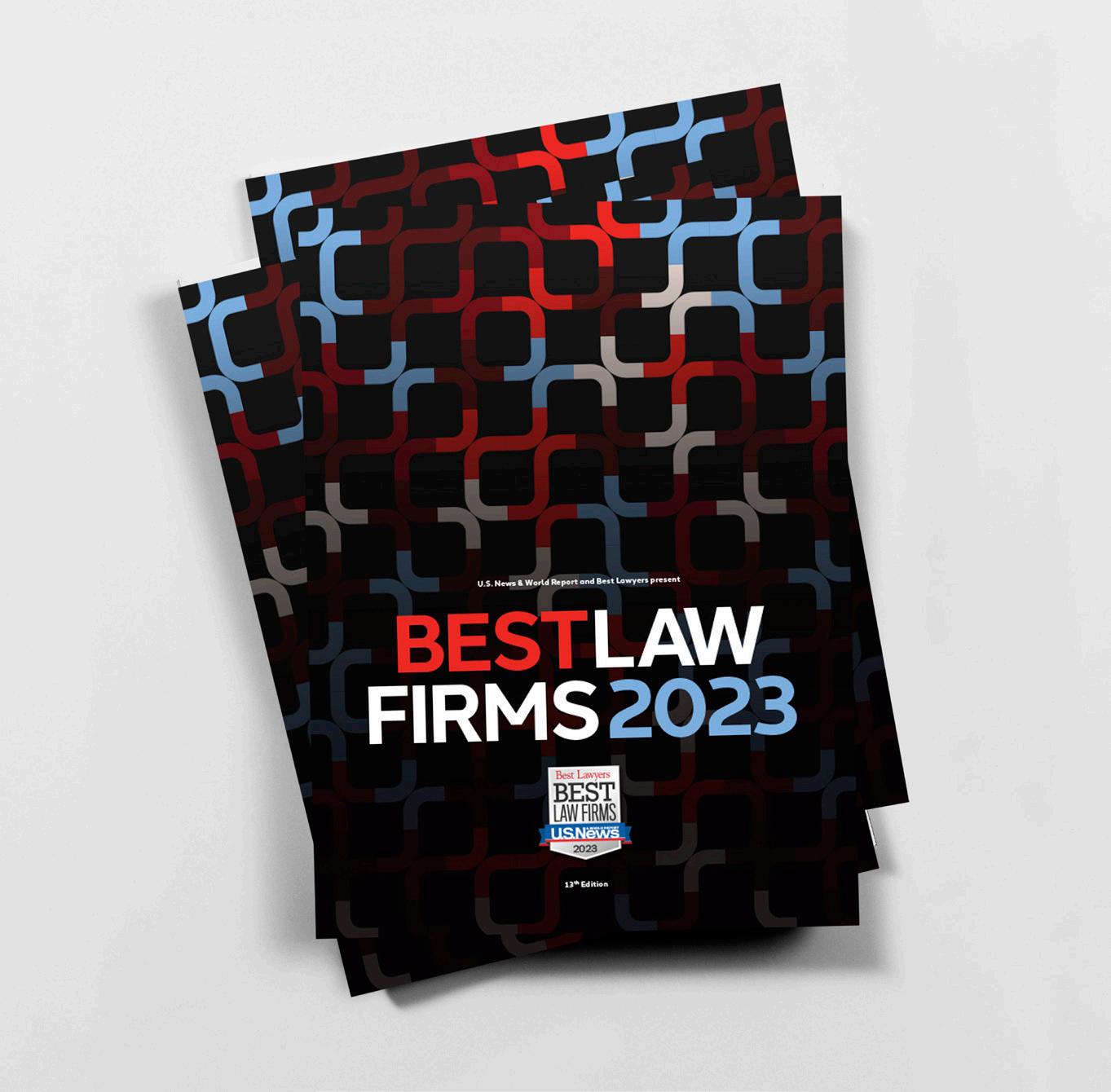








































































































































































For more than four decades, Best Lawyers lists have been compiled by conducting exhaustive peer-review surveys in which tens of thousands of leading lawyers confidentially evaluate their professional peers. If the votes for an attorney are positive enough for inclusion in Best Lawyers, that attorney must maintain those votes in subsequent polls to remain on the list for each edition. Lawyers are not permitted to pay any fee to participate in or be included on our lists.
CHIEF EXECUTIVE OFFICER: PHILLIP GREER
DIRECTOR OF CONTENT: NANCY LIPPINCOTT
SENIOR DESIGN MANAGER & CREATIVE LEAD: ELENI TZINAKOS
PRODUCTION MANAGER & MARKETING STRATEGIST: ZACHARY PEARSON
CONTENT MARKETING SPECIALIST: REBECCA BLACKWELL
SENIOR GRAPHIC DESIGNER: KAIA SMITH
GRAPHIC DESIGNER: EDUARDO RODRIGUEZ
PUBLIC RELATIONS MANAGER: MEGAN EDMONDS
EDITORIAL ASSISTANT: GREG SIRICO
PUBLIC RELATIONS ASSISTANT: ANISSA CORDOVA
PRODUCTION COORDINATORS: MAKENLI LADD AALEYAH OBLETON
SALES MARKETING COORDINATOR: BROOKE NARDUCCI
CONTRIBUTING EDITOR: BRIAN DAWSON
MANAGING EDITOR AND DIRECTOR OF RESEARCH & DEVELOPMENT: ELIZABETH PETIT
SENIOR RESEARCH MANAGER: KRISTEN GREER RESEARCH MANAGER: KIMBERLY WELSH RESEARCH COMMUNICATIONS COORDINATOR: ALLIS YANG RESEARCH ASSISTANT II: COLE MCCREARY MICHAELLA GRISSETT MIKA LATHROP RESEARCH SPECIALIST LL LYDIA BURGER DE’ANDREA YOUMANS
BEST LAW FIRMS RESEARCH MANAGER: VALERIE SMITH CUSTOMER SERVICE COORDINATOR: NICK NYHOFF RESEARCH AND DEVELOPMENT STRATEGIST: MIKE MURPHY
DIRECTOR OF SALES: JOSH RUPALL
SALES MANAGER & LEGAL MEDIA SPECIALIST: MANNY CANDAL
LEGAL MEDIA SPECIALISTS: MADISON BELVITO JENNIE BOND KELLY BROWN ROBERT GAULT ARIS HAMPARSUMYAN LEIGHA KIRKLAND CORINNE LANG ALANA O'LEARY MICHAEL PRATT NAVITA RAMPRASAD AMANDA SULLIVAN
Lawyers can be nominated by anyone but themselves.
Current listed lawyers provide feedback on the nominee’s work.
Results are calculated and feedback is reviewed.
Nominees are confirmed to be in good standing with their local bar associations.
Firms are informed of results and the list is published.
To nominate an attorney for the next edition, please visit www.bestlawyers.com/nominate. NOMINATE
DALE THOMAS
SALES & BUSINESS ASSISTANT: POLLY ZHOU
DIRECTOR OF IT: LARRY MEADOWS
SOFTWARE ARCHITECTS: CAROLINE CHONKO GORDON CREEL
SOFTWARE ENGINEERS: PHILLIP DOMINY RANDALL GUENTHER CINDY PHAM
APPLICATION SUPPORT & SOFTWARE DEVELOPER: KIMBERLY JACKSON
QUALITY ASSURANCE TEST ENGINEER: BENJAMIN HEPNER
CHIEF FINANCIAL OFFICER: ALYSA CARMICHAEL, CPA
HUMAN RESOURCES MANAGER: AMY CONNOLLY
SENIOR FINANCIAL ANALYST: NICHOLAS ELSTON
STAFF ACCOUNTANT: PERSA RHODEN
FINANCE COORDINATOR: MELANIE CHAVEZ
EXECUTIVE BUSINESS PARTNER: KRYSTAL VALENTINE PRODUCT OWNER: JULIE DANIEL
HEADQUARTERS: 801 BROAD STREET, SUITE 950 AUGUSTA, GA 30901 U.S.A. 803.648.0300
Jennifer Brandt is the chair of Cozen O’Connor’s Family Law Group and the American Bar Association Family Law Section secretary for the 2022-2023 year. She has significant experience representing parties in divorce, custody and support/alimony matters throughout Pennsylvania and New Jersey. Jennifer can be reached at jbrandt@cozen.com and 215.665.2113.
Anthony J. Enea is a member of Enea, Scanlan and Sirignano, LLP in White Plains, New York. A past chair of the New York State Bar Association’s Elder Law & Special Needs Section and 50+ Section, Anthony focuses his practice on Wills, Trusts and Estates and Elder Law. He can be reached at 914.948.1500 or by visiting www.esslawfirm.com.
Theresa Jo Gaffney is a singer, songwriter and author. She has written numerous articles for MG car magazines and is currently writing a book about her life and travels with her husband. Early next year she plans to resume performing her music locally and recording a new CD. She lives in north Georgia with her dog, Lucy, and enjoys spending time with her family, especially her grandchildren. She can be reached at www.theresajogaffney.com

John M. Goralka is the founder of The Goralka Law Firm. He assists business owners, real estate owners and successful families to achieve their enlightened dreams by better protecting their assets, minimizing income and estate tax and resolving messes and transitions to preserve, protect and enhance their legacy. John is one of few California attorneys certified as a Specialist by the State Bar of California Board of Legal Specialization in both Taxation and Estate Planning, Trust and Probate.
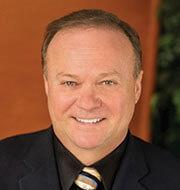
Lindsay Heller is a partner in the Family Law Department of Fox Rothschild LLP. Based in the firm’s Morristown, NJ office, she can be reached at lheller@foxrothschild.com



David W. Holaday, ChFC®, CAP®, has over 30 years of experience as a financial consultant. He is the founder and managing member of Wealth Design Consultants LLC (www.wdcplan.com), which offers case design, analysis and presentation services to organizations and individuals that serve high-net-worth clients. Clients of the firm include lawyers, financial advisers, family offices and charities. More recently he founded Farm Exit Solutions LLC to help sellers of agricultural properties reduce tax and gain more liquidity on sales of qualifying assets. He has a national reputation for developing unique and comprehensive solutions for complex family situations and often collaborates with the client’s existing tax, legal, insurance and investment advisers.
Michele M. Jochner is a partner at Schiller DuCanto & Fleck LLP in Chicago, one of the country’s premier matrimonial law firms, where she handles high-asset, complex appellate matters, as well as critical trial pleadings requiring sophisticated analysis, advocacy and drafting. A former law clerk to two Chief Justices of the Illinois Supreme Court, a sought-after speaker and a recognized thought-leader who has penned more than 200 articles, she has been honored as one of the top 50 most influential women in law by the Chicago Daily Law Bulletin and has been recognized in The Best Lawyers in America ® since 2015 in Family Law.

Jonathan Merel is the founder of the Law Offices of Jonathan Merel, P.C., a leading family law firm based in Chicago. Known as a skillful and aggressive negotiator, Jonathan is an experienced attorney who advocates for his clients in divorce and family law proceedings. His ability to settle heated divorces in multimillion-dollar marital estates and contested custody disputes has gained a great deal of respect from fellow attorneys and judges. Jonathan’s philosophy is to build trusting relationships through open and frequent communication. Founded in 2009, Merel has become a premier law firm in Chicago.
Justin Smulison is a professional writer who regularly contributes to Best Lawyers. He was previously a reporter for the New York Law Journal and also led content and production for the Custom Projects Group at ALM Media. In addition to his various credited and uncredited writing projects, he has developed global audiences hosting and producing podcasts and audio interviews for professional organizations and music sites.
Joseph Trotti is the head partner of Vishnick McGovern Milizio LLP’s Matrimonial and Family Law Practice and founder of the VMM Family InstituteSM. He leads VMM’s Litigation Department and is a key member of the firm’s Surrogacy, Adoption and Assisted Reproduction and LGBTQ Representation practices. He can be reached at jtrotti@vmmlegal.com and 516.437.4385.




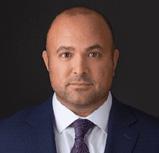

Jim Vedder is a member Moss & Barnett’s Family Law group. He has significant trial and settlement experience in complex marital dissolution matters, including the division of marital and nonmarital assets, the division of closely held businesses, spousal maintenance, child support and custody issues. Jim brings a compassionate approach to difficult family law cases in both alternative dispute resolution forums and litigation.

As a partner of BAM Family Law in Denver, Colorado, Steven M. Visioli is adept at reaching amicable and favorable resolutions in the difficult, and sometimes highly complex, legal matters that family breakups can entail. In 2022, in an annual statewide survey, Law Week Colorado named Steven “Best Family Law Lawyer.” Steven has been recognized in Best Lawyers: Ones to Watch™ in America for the past three years in Family Law.
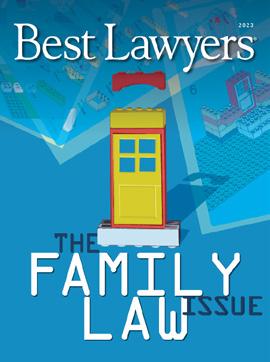
April Will is a member of Moss & Barnett’s Family Law group. She assists clients in all family law related matters, including dissolution and post-dissolution proceedings, paternity and custody actions, and cases related to parenting time, child support and spousal maintenance.
COMMENTS?
For more information on Best Lawyers or to subscribe to your regional edition of Best Lawyers magazine, please email info@bestlawyers.com or call 803.648.0300.
Composed by Eleni Tzinakos with iStock/ Dusan Stankovic and pages from booklet 5508 © The LEGO Group
We believe the best lawyers know who the best lawyers are.Best Lawyers® highlights one attorney in a particular location and practice area who received the highest votes from his or her peers in a given year.
Kristin Adamson
Tallahassee
Robert J. Adinolfi Cherry Hill
Francis C. Affronti Rochester-NY Virginia A. Albers Omaha Denise AlexanderPyle Fort Wayne Allison W. Anders Norfolk
Brigeda
John M. Dohner Akron
Jennifer
Shannon
Hirschel
James D. Lamm Minneapolis Stephen LancasterR.
A. W. McKinnon Richmond John J. Metzke Cheyenne Paul D. Meyer Savannah DouglasMielockA. Lansing William B. Millard Kalamazoo M. Elizabeth Monihan Cleveland M. Read Moore San Francisco Paul P. Morf Cedar Rapids Brian G. Morrison Wilmington-NC Peter T. Mott
YOU’VE DONE ALL you can to prepare and present your client’s case, but despite your best efforts, the trial court rules against you. Emotions often run high after a fiercely litigated loss, and your client may ask you to immediately file an appeal to “fix” the trial court’s ruling and get it reversed. Don’t let that train leave the station before you carefully examine the ruling and have a frank discussion with your client about the many pros and cons of doing so.
There’s no doubt: Appealing is time-consuming and often expensive, and both counsel and client must carefully and realistically consider whether it’s worth their while. The next time you face the prospect of an appeal, include the following in your checklist:
Is the Loss Appealable—and Worth Appealing?
This is the threshold question. Family law attorneys practice in a world of fluid situations, of orders that are often “temporary” until a “final” decision can be entered. Appeals are generally taken from final judgments, but
rules of practice enacted by state supreme courts can provide for appellate jurisdiction to consider nonfinal orders in certain circumstances. Start, then, by understanding what type of order was entered, and be sure that appellate jurisdiction exists to review the order under the applicable rules.
Even though a ruling may be appealable, that doesn’t automatically mean an appeal is the best course of action. Not every loss is worth appealing, and you should perform a detailed, objective analysis of several factors before proceeding.
First, it’s important to consider the standard of review that applies to your case and whether it works for or against your client. An appellant stands in the strongest position if a pure issue of law can be raised, as it is subject to de novo review where no deference is given to the trial court. On the other hand, an appellant is in the weakest position if the claim of error is one of abuse of discretion, in which the most deference is accorded to the trial court’s ruling. You must understand the effect of the standard of review, especially

It’s frustrating to lose a case you’ve worked hard on. When considering whether to take an appeal of that ruling, here’s what to keep in mind—and how to enable your client to make that decision.
"Not every loss is worth appealing, and you should perform a detailed, objective analysis of several factors before proceeding."
The attorneys at Kelly Byrnes & Danker recognize and understand the complexities of domestic relations law, as well as the emotional upheaval and disruption confronting a client who is faced with a pending marital dissolution and the myriad of unforeseen legal issues. The firm’s attorneys are always focused on a common goal: keeping clients focused on the end result of the legal process instead of the issues that actually brought them to the firm. With the firm’s collective experience, coupled with each attorney’s unique approach and style, Kelly Byrnes & Danker is uniquely qualified to handle any family issue that arises.
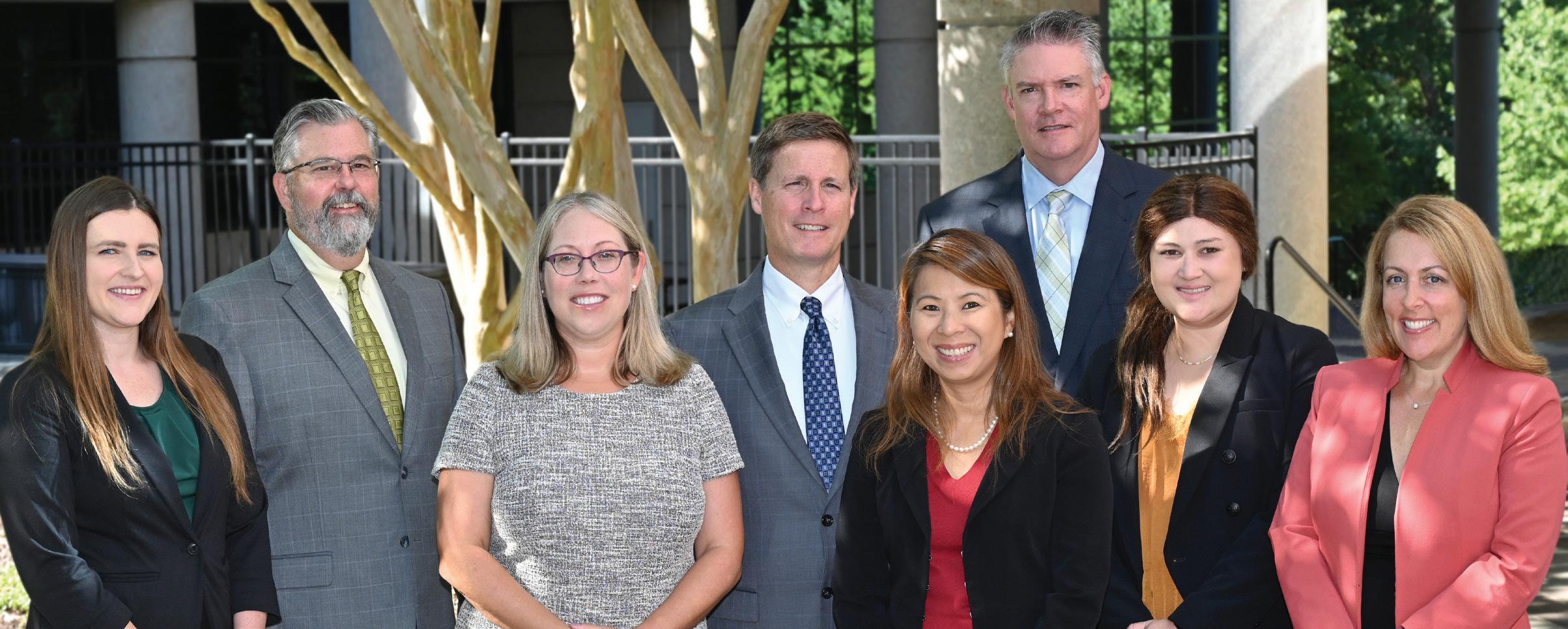
As Byrnes says, the firm offers a variety of ways for clients to resolve their family law disputes, including settlement negotiations, mediation, and contested litigation. “We also now offer collaborative law, which helps create and foster an atmosphere of communication and cooperation, as well as a way for clients to settle their divorce without the threat of litigation,” Byrnes notes. It’s just another way the firm helps clients find an approach that is specifically tailored to best fit their needs. It’s no surprise, then, that the firm is ranked as a Tier 1 family law practice in Washington, D.C., by U.S. News - Best Lawyers® “Best Law Firms” 2023—and that four of its partners were selected for inclusion in The Best Lawyers in America® 2023 and other peer-reviewed lists.
“Regardless of how we work to resolve our clients’ matters, we want them to understand that there’s a light at the end of the tunnel,” says Byrnes.

when it means the appeal does not start out on a level playing field due to the deference given to the trial court’s judgment.
Second, consider that taking an appeal of a portion of the judgment could be the catalyst for the opposing party to file its own request for cross-relief on parts of the judgment decided in your client’s favor. By putting the trial decision in play, the other side might ultimately get the favorable (to you) aspects of the decision overturned, leaving your client in a worse position than before. Assess the risk of which potential issues the opposing side could raise, and the probability of success.
Finally, do a thorough cost-benefit analysis to determine whether an appeal could in fact benefit your client. For example, will the cost of the appeal deprive your client of any potential financial benefit she could get from a victory? Can your client emotionally handle the additional months—perhaps years— of litigation? If the parties have children, what impact will an appeal have on them?
Be aware that your client could also be on the hook for the fees the other side incurs in defending the appeal. Because attorney fee shifting is common in family law cases, it can also carry over into the appellate process. Factor this possibility into your equation.

with the Three C’s
Once you’ve determined that the loss is appealable and have considered the factors outlined above, the next step is to discuss the possibility of an appeal with your client. When you do, remember the
three C’s: clarity, comprehension and costs. Focusing on these will go a long way toward effectively managing your client’s expectations and make the process easier for everyone.
First, be crystal-clear about the purpose of an appeal: The task of the appellate court is to examine the trial court record to determine whether it committed any errors of fact or law. Your client must understand that she is bound by what’s in the record, and that the appellate court takes no evidence and hears no witnesses. Use this opportunity to make it clear that an appeal is neither simply a second bite at the legal apple nor a “do-over” of the hearing or trial. It is instead another full round of litigation that takes many months, sometimes years, to conclude—and is undeniably costly.
Be sure your client understands the process: Walk her through each step in detail, explain the type of work required and provide a timeline for completion of each phase. An appeal requires the attorney to have deep understanding of all aspects of the trial court record, as success in briefing and oral argument rests upon counsel’s mastery of the facts and the application of law to those facts. If appellate counsel is not the same attorney who tried the case, the client must be prepared to accept additional expense for the time the new attorney needs to get up to speed with everything that
occurred prior to judgment. This cost alone can be significant when the record is voluminous.
In addition, explain that the purpose of the appellate briefs is to tell the client’s story. They’re often lengthy and complex, which means they can also be very costly. Page limits vary by jurisdiction; in Illinois, for example, opening briefs are capped at 50 pages—or 80 pages if cross-relief is also sought. If oral argument is granted, preparation for that all-important give and take with the appellate panel is likewise timeconsuming and expensive.
The bottom line: It’s necessary not only to have a frank discussion about the cost of the appeal but also about the possible outcomes: that despite investing additional tens of thousands of dollars to appeal the trial court’s ruling, the result might be exactly the same—or worse. Discuss as well the impact of the standard of review, as well as the risks of the other party filing a cross-appeal and/ or petitioning for appellate fees.
Finally, never oversell what could happen. If your client wishes to proceed after being fully informed about the various risks and that the chance of prevailing is uncertain while the costs may be high, that’s fine, as long as she fully understands the steps of the process, the expenses she’ll incur and the risks involved.
Of course, additional considerations will likely arise depending on the facts of the case. Suffice it to say that both the costs and the benefits of appealing a trial court’s ruling can be significant. The key is to carefully review that ruling and prepare your client for what lies ahead so she can make a fully informed decision. •
"It’s necessary not only to have a frank discussion about the cost of the appeal but also about the possible outcomes."
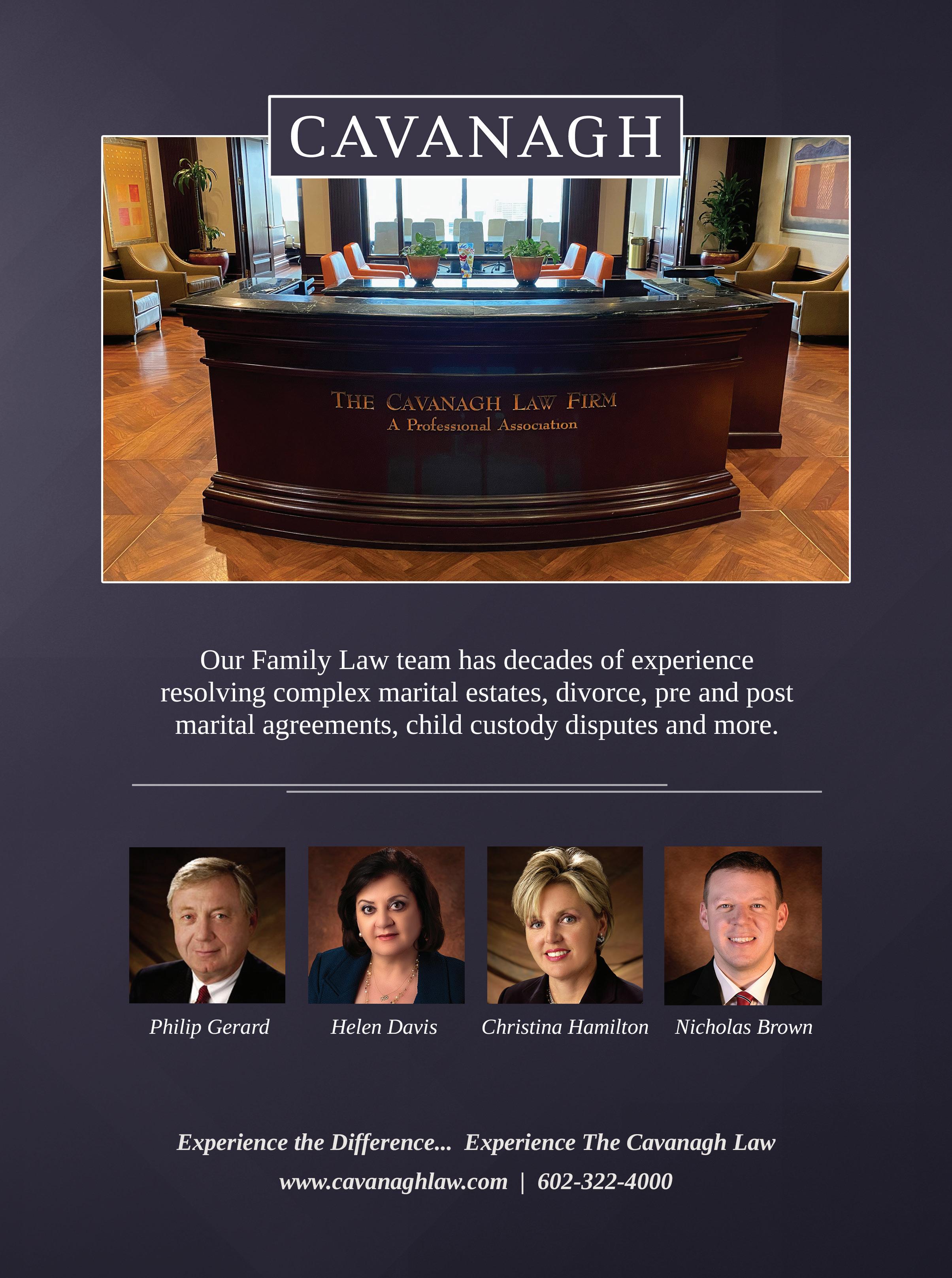
It’s never easy to contemplate one’s mortality. Yet end-of-life planning is essential at any age, as I learned all too well when my husband contracted COVID-19 several months into the pandemic. The peace of mind such forethought brings is essential should the worst come to pass.
 By Theresa Jo Gaffney
By Theresa Jo Gaffney
MY HUSBAND, TIM, and I were known for being big dreamers, planners and adventurers. We lived fully, intentionally and with deep gratitude for the life we cultivated. We worked hard our whole lives, and when we retired, we were ready to play hard.
One of our proudest accomplishments was the completion of “The Great Loop,” an epic circumnavigation by boat of the eastern U.S. and parts of Canada. It was a multiyear endeavor involving friends, adventure and many nights looking at charts and plotting our course.
When the pandemic hit in early 2020 and we were forced to quarantine, we took solace in pacing ourselves for a few weeks at home.
When those few weeks turned into a few months, though, we started seeking ways to safely reconnect with our communities. I’m a songwriter, guitarist and singer, so I took to Facebook Live to perform free “quarantine concerts” to lift the spirits of friends and family. We signed up to help sell Christmas trees and serve food at a soup kitchen. We wore masks, sanitized constantly and tried to maintain distance as much as possible. As happened to so many, though, despite our best efforts to be careful, we both fell sick with COVID-19 after these wellintentioned outings.
On Tuesday, December 8, 2020, we received our positive diagnosis. We were trying to remain hopeful that we
would have mild cases, but Tim was diabetic and in his 60s; we weren’t ignorant of how serious this could be. There were few treatments available, no vaccine and limited information on long-term effects.
On Sunday, December 13, I took Tim to the hospital when his symptoms worsened and he had trouble breathing. He was promptly diagnosed with pneumonia. The staff immediately began searching for a larger hospital to transport him to, but none was available. All hospitals were filled to overflowing with COVID-19 patients.
Then things got much worse.
The following Tuesday, Tim went into respiratory arrest and exhibited signs of a stroke. He was sedated and intubated, and the search for a larger hospital intensified. After days of exhaustive and frantic searching by hospital staff, insurance companies and even family members, we found a larger hospital in the Atlanta area that could handle the severity of his situation.
That Friday, December 18, Tim was airlifted and immediately received a battery of tests. A few hours later, an emergency room doctor told me that the COVID-19pneumonia had sent blood clots
throughout Tim’s body. The clots in his brain had caused multiple strokes on both sides. It was too soon to know the extent of the damage, but they already knew he would be blinded and paralyzed on his left side, and that his executive functions would be affected. There wasn’t much hope. They were making him comfortable, and only time would tell.
Then the doctor asked if Tim had any medical directives.
My mind could not absorb this information. My husband was in the ICU living out his worst nightmare: dying in a hospital, alone, listening to the sounds of the machines that were fighting to keep him alive.
I was alone as well—still quarantined. Doctors needed to know about medical directives and wills, and we had none of this. Although we had always been planners, planning end-of-life care seemed too somber, and we always put it off. We never wanted to think about the unthinkable. We thought such paperwork was vital only after someone died. But Tim was still very much alive—except now I needed the ability to make decisions for him.

In the days that followed, Tim regained consciousness, came off
the ventilator and began speaking. It was nothing short of a miracle, but the doctors reminded me often of the reality that he was still a very sick man. It was apparent that the strokes had indeed caused brain injury. He was given medications to ease agitation, confusion and aggression in addition to treating the remaining blood clots.
On Christmas Eve, I was able to see him for the first time in more than two weeks. I was one of the very few family members who were allowed to visit a loved one in the hospital during the pandemic. I saw with my own eyes the severity of his new disabilities and became aware that our life would never be the same. Sadly, the unthinkable was our life now. I had to find a solution to the fact that Tim and I did not have wills or medical directives.
When I met with my attorney, we discussed my situation in depth, and I let him know my intentions of crafting a medical directive and will for both Tim and me. He advised that we more immediately needed a power of attorney, which would give me the ability to specify all financial matters including gaining access to our bank accounts, car titles and deeds.
In addition to offering his professional advice on legal documents, he was able to provide guidance on how to introduce this idea to Tim over the course of a few days and how we would navigate virtually signing the documents with a sufficient number of witnesses on both sides. As I was the only non–staff member permitted to be in the hospital, I would need a nurse as a witness on my side of the video call.
On January 8, 2021, a day when Tim was alert and clearheaded, our attorney met with us via videoconference. He patiently explained to Tim all the particulars of the paperwork. I explained all my intentions for our wills, detailed which assets we needed to liquify immediately and verified that I had Tim’s wishes outlined correctly on the medical directive. Our lawyer gave us ample opportunity to ask questions before we signed our paperwork in front of our nursewitness and the staff acting as witnesses on our attorney’s side.
Finally, all the paperwork was signed, and I had everything I needed to navigate us through our new “normal.” I do not understate the miracle of being able to get these documents signed when we
did or the impact it made on my ability to get through the upcoming weeks and months.
On February 18, Tim was moved to a nursing home for rehabilitation, but his required level of care necessitated maximum assistance, and he became a permanent resident. I am eternally grateful we got our documents signed when we did, as it made it much easier for me to handle our affairs in the months that followed. It was a long summer, with multiple hospitalizations and returns to the nursing home. I know how overwhelming this was for me with the proper paperwork finally in hand, and I cannot sympathize enough with those who did not get the miracle with which I was blessed.
On September 4, 2021, nine long months after his initial diagnosis, Tim passed away, and I was at his side—exactly as we had hoped when we finally discussed end-of life-care.
After his passing, I became the executor of his will and estate, charged by the probate court with handling all the estate’s affairs and processing assets the way Tim and I dictated in our wills. With the letters testamentary that the court

presented to me as the executor, I was able to close accounts, transfer items to our beneficiaries and distribute his estate.
Many people are like us: delaying preparing this important paperwork because we didn’t want to think about dying. But Tim was living for nine months with horrible medical conditions, and I needed to take care of him. Having the power of attorney was the only way I could afford a quality of life for him in a facility and myself in a rental nearby. Having the medical directive ensured that I was authorizing care the way he wanted. And having his will meant that my grieving his loss was not compounded by confusion over what to do.
Despite how hard it is to imagine losing a loved one, there is great comfort in knowing you are doing things according to their wishes. If you haven’t already done so, get your will, power of attorney and medical directive completed now. If you already have all these, be sure to review them regularly to assess whether any changes are needed. The greatest gift you can give yourself and your family is making sure the tools are in place to take care of one another.
“I do not understate the miracle of being able to get these documents signed when we did or the impact it made on my ability to get through the upcoming weeks and months.”



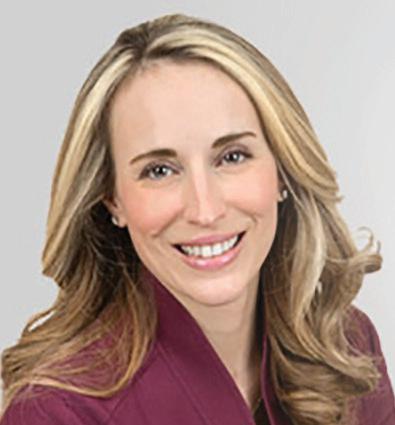
Being a separated parent with kids can add stress to the holidays. These five tips can help you navigate the season, maintain your sanity—and ensure that the focus remains on the children’s happiness.
By Lindsay HellerIT SEEMS AS THOUGH the holidays come upon us ever faster as the years pass. I went shopping just before Halloween, hoping to find some Halloween themed paper goods for an event, and much to my surprise, all Halloween merchandise had been cleared out and Christmas decor occupied every aisle. It felt as if Thanksgiving had been passed over, with everyone now focused on the gift-giving holidays.
While I was disappointed in my own (clearly delayed) holiday decor search, the reality is that society starts planning for the holidays months in advance—and if you don’t, you should. Especially if you
are separated or divorced and have children.
Kids appreciate knowing their plans and need consistency in their
whose parents are together and who therefore likely know where and how they’ll celebrate the holidays.
schedules. Children whose parents are separated or navigating an ongoing divorce deserve to have advance notice just like their friends
While this time of year often stirs up fond memories and warm feelings, it can also be difficult for anyone experiencing hardship, whether financial, familial, recent loss of a loved one or, of course, divorce. We can’t take lightly the ways in which a marital split can change holiday dynamics. The goal of the tip list below is not to induce sadness but to increase the chances for a successful season for parents and kids alike, so family can be the focus—whatever that means for each individual—and not acrimony.
Whether this is your first separated
"We can’t take lightly the ways in which a marital split can change holiday dynamics."iStock/ Dusan Stankovic
Culin, Sharp, Autry & Day, PLC, is pleased to announce its designation in U.S. News – Best Lawyers® “Best Law Firms” 13th edition as a tier 2 Family Law firm in Washington, D.C. and congratulates partner Julie Hottle Day for being named among The Best Lawyers in America® 2023 list for Family Law.

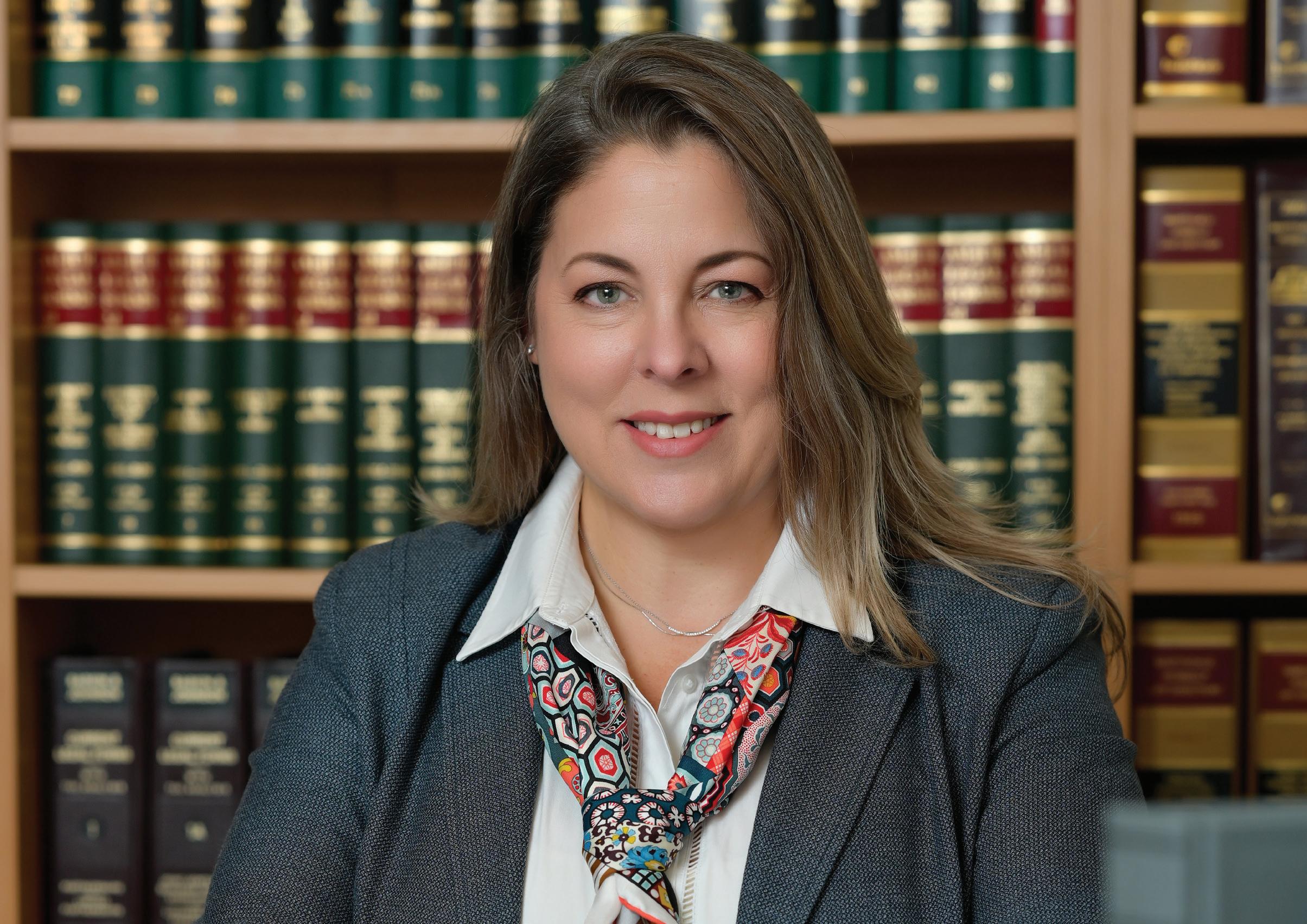
Julie Hottle Day, chair of the family law group at Culin, Sharp, Autry & Day, PLC, holds an AV rating from MartindaleHubbellTM and has over twenty-five years’ experience mediating and litigating divorce and family law matters. Her attention to detail, empathy, and capacity for creative problem solving well serve her clientele, whose personal, business and financial issues are compounded by the many complexities of divorcing parties. Her business law experience allows special insight into divorce matters when distribution of business or other complex assets and retirement benefits are at issue. She views client relations as a partnership, keeping clients well informed and prioritizing hearing their concerns, often
incorporating their ideas into the case process. Julie represents parties in all jurisdictions in Northern Virginia. She is a frequent presenter of continuing legal education seminars and her professional accomplishments have been recognized by her peers in Super Lawyers, The Best Lawyers in America® 2023 for Family Law, and Washingtonian and Northern Virginia Magazines. Julie was nominated into the Northern Virginia Ten Leaders Cooperative for Family Law in 2019.
Culin, Sharp, Autry & Day, PLC is a general practice firm focusing on providing excellent representation to meet the personal and professional legal needs of closely held businesses and the people who own and operate them.


holiday season or the latest of many, take a look at these pointers and consider incorporating them into your plans. They might seem logical, sure, but sometimes logic escapes us—especially during a busy, emotionally fraught time of year.
1. Be sure the holidays are about the kids! As adults, we can rationalize that the holidays come and go. Some are great, some less so, and in any case they’ll be back next year. Kids often don’t understand this, so try to switch your focus as best you can so the holidays remain a happy time for them.
2. Plan time-sharing arrangements in advance. Why not follow the approach I encountered above and plan before Halloween? There’s no better time to schedule Thanksgiving and the December holidays. Keep in mind that courts do not love an emergent application about scheduling on the eve of the holiday. Such an application lacks urgency given that the major holidays are always on or around the same date. Planning will also give your children the peace of mind of knowing where they’ll be spending them.
3. If possible, discuss gifts with your former (or separate) spouse. All parents have their own ideas about what is or isn’t appropriate in terms of volume and cost. Try to avoid duplicate gifts and stay in the same price range if you can. When kids get a duplicate from friends at a birthday party, that’s understandable; at Christmas it might show the kids that Mom and Dad aren’t on the same page. Some parents choose to jointly gift, but this works only if both agree. It can’t be forced and
will not be required.
4. Save your comments about how happy you are not to have to see a member of your separated spouse’s family. Do so when you’re within earshot of your kids, anyway; feel free to tell your friends if you need to vent. Your children are building memories with both sides of their family, and this should be encouraged from everyone on each side. In the same vein, if you hear an extended family member speak ill of your child’s other parent, step in and change the tune. Also, without interrogating, show interest in what your kids are doing with their other parent.
5. Have fun! Try your best not to let a separation, divorce, new stepparent or any combination thereof get in the way of enjoying whatever is your favorite part of the holidays. Children are generally the priority at all times of year, but that doesn’t mean you don’t deserve a little self-care as well. There is light at the end of the tunnel: If this is your first postdivorce holiday, you’ll never have to contend with that again. Enjoy, reset and get ready for the new year.
Not all these tips will apply to every parent, and not everyone will have a co-parent who cooperates with your efforts to adhere to them. Remember, though: You can control only your behavior and your side of the aisle. Incorporate these suggestions to the best of your ability, particularly when you don’t need the other parent’s cooperation.
Wishing everyone happy holidays no matter your circumstance, and increasingly happy ones as the years go on! •
BAM Family Law is a different kind of family law firm. Our team of attorneys and staff work together and collaborate with professionals in all areas of family law, bringing energy, compassion, innovation, and integrity to pursue the best possible outcomes for our diverse client base.


BAM has received a variety of local and national awards in recent years and the firm continues to be recognized by U.S. News – Best Lawyers® “Best Law Firms” 2023 as a Tier 3 firm in Colorado for Family Law, to have Heather Broxterman listed in The Best Lawyers in America® 2023 for Family Law and Steven Visioli listed in Best Lawyers: Ones to Watch™ in America 2023 for Family Law.
At BAM you are more than just a client, you are a person– and we have your back!
ANY FAMILY-LAW litigator will tell you our clients are, by and large, not the best at following advice. In our clients’ defense, our advice can sometimes be very hard to swallow. There are, however, certain truths in divorce that practitioners have watched many people learn the hard way: Settlement is most likely on the courthouse steps; a motion for contempt may be the least effective way to change someone’s bad behavior; and—just in time for the holidays—you will be happier developing new family traditions than trying to hold onto the ones you had prior to the divorce.
A time when I find my advice most hastily disregarded is when the parties are close to settling an allocation-ofparental-responsibilities case. While clients may envision peaceful postdecree parenting relationships, their counsel can easily spot the problems that will result from the insertion of wellintentioned, but often ill-fated, parenting time agreements. Post-decree litigation, for many family law attorneys, makes up no less than half of the practice.
Here we’ll explore common holidayand vacation-related pitfalls of plans for newly separated parents, as well as the benefits to parents and children alike of alternating holidays, expanding holiday parenting time and allowing

extended vacation parenting time.
For some clients, no amount of mediation-table horror stories can dissuade them from inserting regrettable provisions into their parenting plan, such as a right of first refusal, a daily communication requirement or a prohibition on introducing future significant others.
While those things might seem important at the outset of coparenting, the reality is that any of them can be manipulated—and all too often, they are.
When crafting terms for a parenting plan, it is imperative to move away from ideals and remember that what is being created is a proposed court order. Ask yourself which provisions being added are enforceable and which you would actually want enforced. These questions are especially important when either party will be authorized to file and initiate expensive post-decree motions seeking to remedy violations of the provisions. Many provisions written with the best intentions can double as a sword and shield for a controlling ex and can be the unfortunate bases for needlessly expansive litigation.
In the same vein, there is nothing that will ruin your holidays quite like a complicated sharing schedule you came up with while wearing rose-
colored mediation glasses.
To be clear, divorcing parents who, in their children’s best interests, can overcome their differences to reach agreements for a parenting schedule and decision-making protocol should not be discouraged. But let’s be honest: You’re not going to want to spend every Halloween, Christmas and kids’ birthdays with your ex.
Second only to sharing a holiday with your ex is a requirement that parenting time exchanges occur on holidays. Missing a few holidays with your kids will not outweigh the struggle and trauma you may be imposing upon yourself by falling into one of these traps. Doing so may also significantly stunt your ability to travel with (and without) your children, create and enjoy new post-divorce family traditions and more.
Especially for the newly separated, the thought of either parent being away from their children on a holiday for which the family had special traditions can be almost intolerable. Recent separation can be a bumpy road, but both parents insisting upon being present at every event or function does not make it any smoother. Many parents tend to ignore legal advice about such insistence until they try, fail and prove to themselves that being present for every single event, even
’Tis the season…for a vacation without the kids. A recommendation against sharing co-parenting holidays with your ex.
Divorce and child custody litigation is tough—you need family law advocates that are tougher. Bogdanowicz Family Law has been recognized by Best Lawyers® on the U.S. News – Best Lawyers® “Best Law Firms” list for 2023 as a Tier 2 Family Law firm in Dallas/ Fort Worth. Erin Bogdanowicz, founder of Bogdanowicz Family Law, is Board Certified in Family Law by the Texas Board of Legal Specialization, a specialization that only approximately 1% of all attorneys in Texas hold. Bogdanowicz Family Law is a boutique law firm that focuses solely on the practice of family law handling cases in all areas of domestic and family law, including divorce, child custody, child support, premarital and post marital agreements,

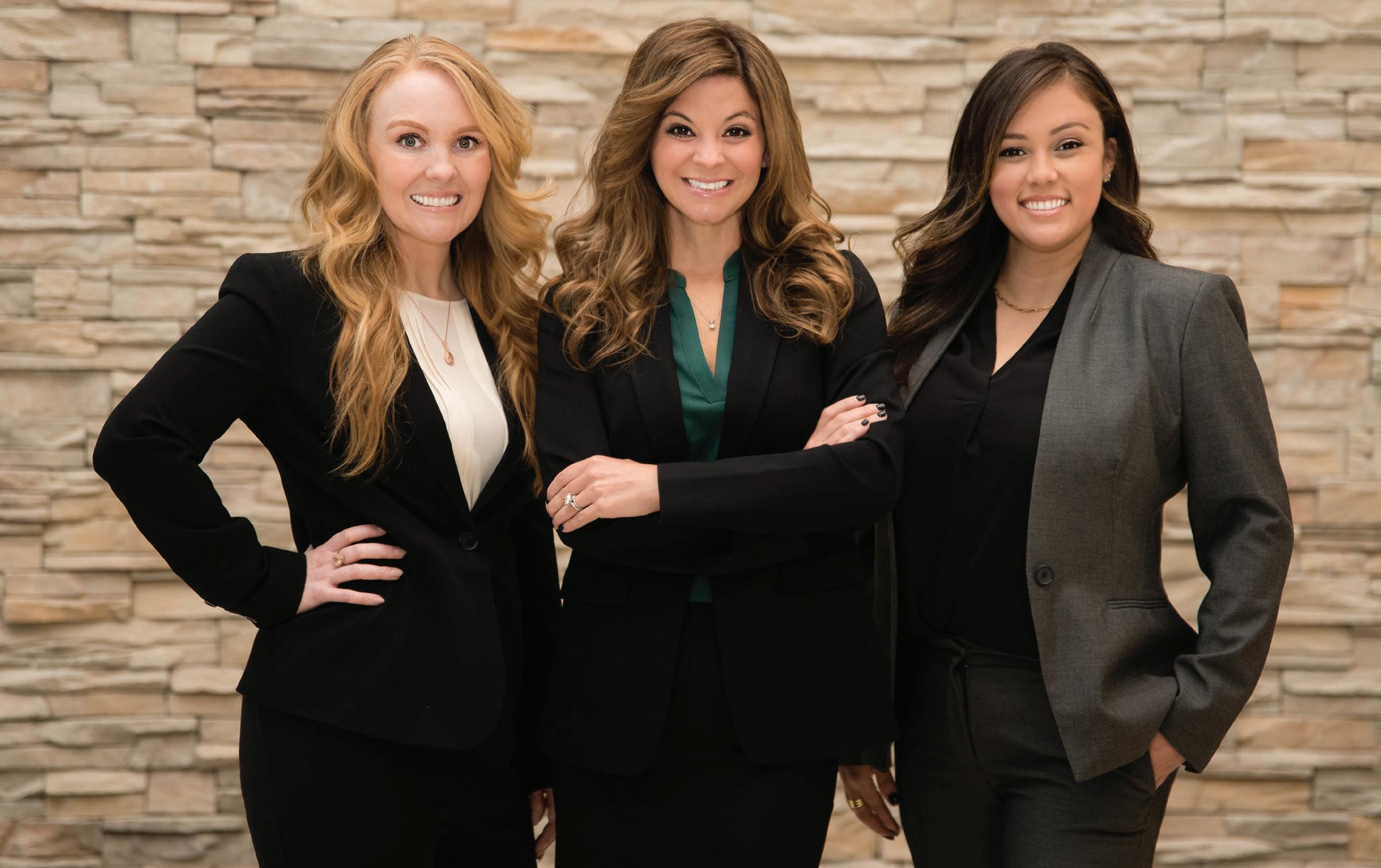
Collin County Office (Principal Office)
5600 Tennyson Parkway, Suite 365 Plano, Texas 75024
grandparents rights, restraining and protection orders, adoptions, collaborative law, and modifications. Among other accolades, Erin was recognized by Thomson Reuters as a Super Lawyer in 2022 and, before that, as a Rising Star each year from 2014 to 2022. She was named on the Best Lawyers in Dallas list by D Magazine in 2021 and 2022 and the Best Lawyers Under 40 list in 2020, 2021, and 2022. If you want family lawyers who are in it with you and stay up at night worrying about you and your family, look no further. Having lawyers who know the intricacies of family law, deal with these issues day in and day out, and can give you a concrete plan and sound guidance makes all the difference.
Dallas County Office
5001 LBJ Freeway, Suite 875 Dallas, Texas 75244
Tel: (469) 409-7450 | Fax: (469) 409-7451 | erin@bogfamilylaw.com
if that’s what the children are saying they want, might not be worth the risk of exposing them to in-person parental conflict. The lucky learn that lesson during the pendency of the legal case (with minimal conflict, ideally), so that by the time discussions turn to settlement of permanent orders, terms for a parenting plan will be drafted with reduction of conflict at the forefront instead of as an afterthought.
The not-so-lucky will fall into the wellintentioned trap of trying to stipulate the holiday time shared contemporaneously between co-parents. This might include joint trick-or-treating, attending the same fireworks show on July 4th, or reliving the good old days with a shared trip over Labor Day weekend. While well-intentioned, these thoughts may result in a court order mandating that you spend time in the proximity of someone with whom you have plenty of unaired dirty laundry, who may be at a completely different place in their grieving or healing process and who might never be on good terms with your new partner.
Agreements to split holidays—for example, having a parenting time exchange occur on Thanksgiving or Christmas Day—are not much better. Such agreements are almost exclusively more for the benefit of the parents who don’t want to miss a holiday with the kids than for the kids themselves. The reality is that your children probably don’t mind celebrating twice. Day-of exchanges on holidays instead force your children into situations where they’ll be enjoying festivities during one parent’s time before being abruptly tossed into
a transition and made to tote all the accompanying emotional baggage. Children may be led to believe—or may, in any case, understand—that the interruption to their good time during a holiday was caused by their parents, no matter how good their relationship with each parent may be.
The holidays can be tough on the children of divorced parents, and kids will be happier and experience less upheaval if the parenting time exchange occurs on another day. Day-of exchanges result in a lot of big emotions for confused kids fearing that they’re missing out on special moments. Instead, alternate holidays—and if it’s not your year, celebrate a few days before or a few days after. While you may not have the actual holiday with your children every other year, the result for them is a broadening of the season, lesshectic exchanges—and, of course, double the presents!
Another overlooked aspect of holiday parenting time schedules, especially for those whose children are young at the time of the divorce, is that tight turnarounds for holiday parenting time may preclude you from traveling. There are certainly great reasons to have frequent parenting time exchanges with young children. Too much time away from either parent— even a minority-time parent—can be dysregulating for children and may affect that parent-child relationship in lasting ways. As children get older and become accustomed to splitting time between homes, however, a parenting plan that writes off giving them extended time with parents will
preclude them from trips, experiences and visits to family out of state. While it is hard to predict when children will be ready for longer periods of time away from a parent, many manage to bridge this gap by including “stepup” provisions with expanded time or extended visits starting at a child’s specific future age.

Writing longer periods of holiday time into your parenting plan will open up another important aspect of your post-decree life: free time and travel without your kids. The guilt that this causes some parents tends to pass with time. Parents learning to live post-decree deserve a post-decree life, often including new friends, a new partner and the addition of halfsiblings. Optimally, despite sharing time between parents, your children will be fully integrated into whatever your family looks like. While it’s important to craft a parenting plan that frees up your children to enjoy travel with both parents, it’s equally important to consider your own happiness when your children are spending holiday time with your co-parent.
The holidays can be tough on all involved during and following divorce. Parenting plan agreements that seek to share, rather than alternate, parenting time make holidays for parents and children alike even more difficult. Overcomplicating holidays with day-of exchanges or detailed provisions mandating cooperation between splitting parents works against the children’s best interests and increases conflict. Although existing family traditions and religious practices should be considered when crafting parenting time schedules, the needs of children to avoid upheaval— and the needs of parents to have sufficient holiday time with (and without) their kids—are also of the utmost importance.
Happy Holidays!
•
“There is nothing that will ruin your holidays quite like a complicated sharing schedule you came up with while wearing rose-colored mediation glasses.”




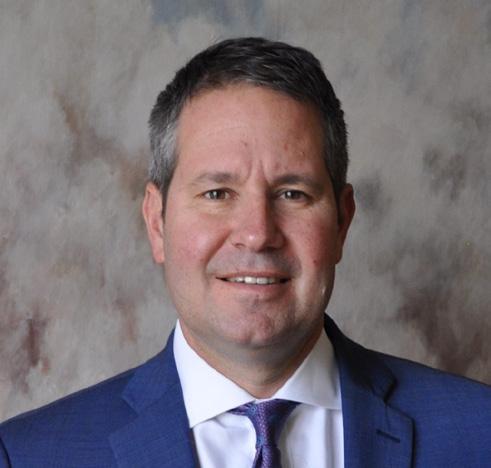

Couples who choose to end their marriage during a recession must confront a host of difficult economic questions in addition to all the financial and emotional demands inherent in any divorce.
By Jennifer BrandtTHERE IS CONSENSUS among economists that the U.S. is already in or is heading into a recession. Its depth and duration remain unknown, its ultimate impact unclear. What is certain, though, is that our financial footing can lose its hold in many ways during a downturn: Assets, investments and closely held businesses may lose value, jobs can be lost, qualifying for a mortgage might become more difficult—and if this is all coupled with rising prices, goods and services will become less affordable.
These difficulties cause stress and uncertainty for just about everyone and may affect relationships to the extent that many couples may consider divorcing. For those already doing so, an economic downturn may alter the trajectory of the proceeding—negatively for some, perhaps positively for others.
Without question, a downturn can stress even the strongest marriages, especially when savings are diminished, income is reduced and jobs are lost. Financial trouble often leads to lifestyle changes: fewer vacations and dinners out, fewer extras, more belt-tightening. This can spark discord and lead to a relationship breakdown ending in a split.

It’s true, then, that recessions may bring about more instances of divorce. Nonetheless, if finances are tight, some couples under stress— who might otherwise throw in the towel and end the marriage—might conclude instead that divorce will be too expensive. From a financial standpoint, at least, they realize that they wouldn’t be able to maintain a similar lifestyle apart and are better off preserving their assets and income together. Instead of breaking up, they may try harder to find ways to repair the relationship.
For those in the middle of divorce or those who decide things are so untenable that divorce is the only option, an economic downturn can affect many aspects of the process. If there is less money to go around, for example, a divorcing
Frances H. Krasnow

is a highly respected family lawyer who has long been a leader in the Chicago community. An experienced trial attorney and powerful advocate, Fran also frequently engages in mediation and she is also an arbitrator. Fran is a compassionate and resourceful attorney whose practice encompasses all areas of complex family law, including marital dissolutions, divorce, child custody, maintenance and child support, relocation, asset identification and allocation, and she has extensive experience with prenuptial and postnuptial agreements. Because Harrison & Held also provides depth in multiple related practice areas, Fran’s clients have access to sophisticated estate planners, as well as real estate, tax and transactional advice.


Fran has received many peer-selected awards, including being honored as a 2022 Top Woman in the Law by Chicago Lawyer magazine and the Chicago Daily Law Bulletin,
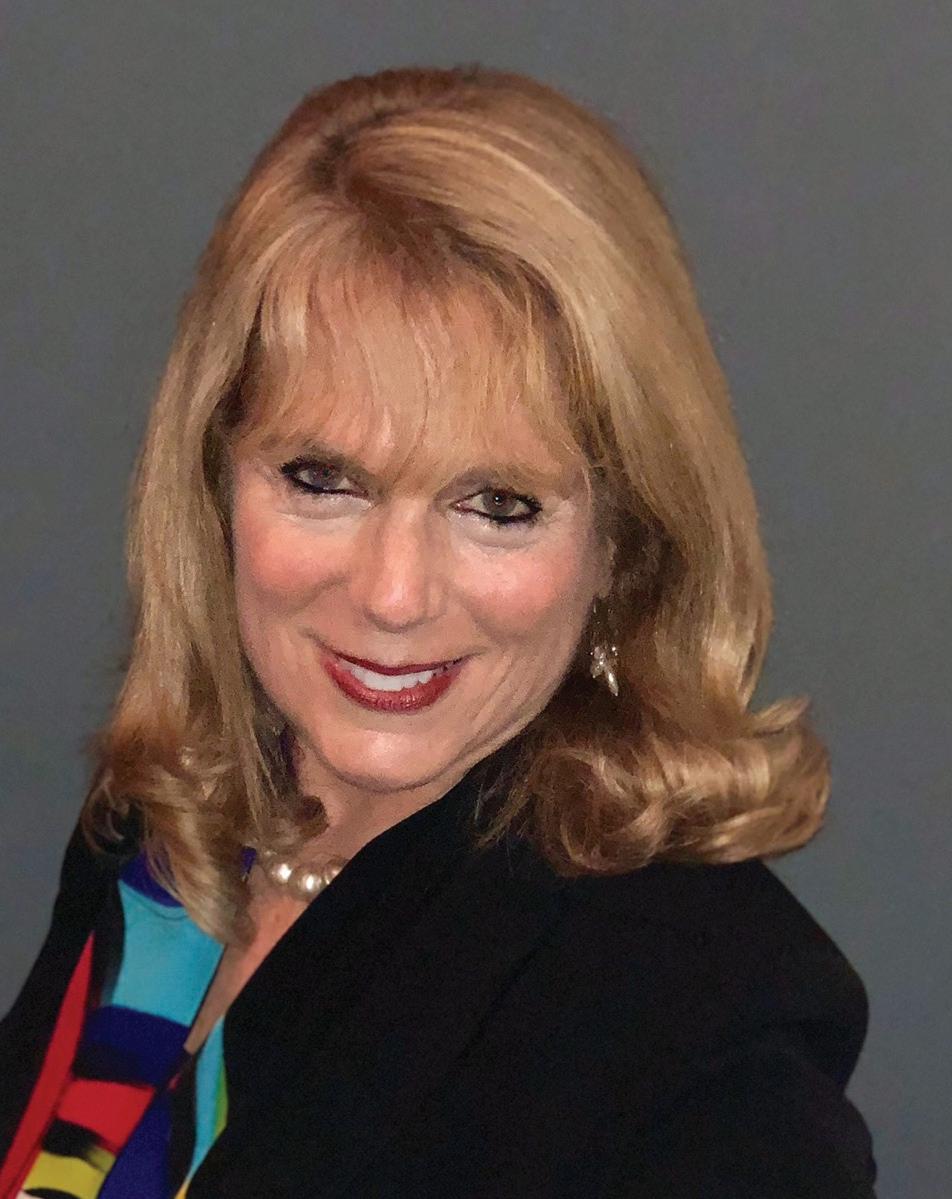
recognizing Fran for her professional success and for mentoring and promoting women in the legal profession. Fran has also been listed in The Best Lawyers in America® for Family Law since 2008, among other peer-rated awards. Fran is a Fellow of the American Bar Foundation and, in acknowledgement of her professional accomplishments and community leadership, Fran received the ADL Woman of Achievement Award as well as the AFHU Leaders of Distinction Award.
Fran’s strong commitment to community service spans her entire legal career. She is currently Chairman of the Board of the ninestate Anti-Defamation League Midwest Region. Fran also serves on the board of her alma mater, Northwestern Pritzker School of Law, as well as the Chicago Appleseed Center for Fair Courts. Fran is also on the board of a Wintrust subsidiary.
Harrison & Held is proud to congratulate Fran for this well-deserved recognition.

couple may have no choice but to live together during pendency to conserve resources. A divorcing couple who continue to live together, especially when money is tight, can be a bad thing not only for the two of them but also for any children who have to live in an unhappy household. At its worst, this can lead to domestic violence.
With costs rising and less money to spend, legal services are harder to afford. This might lead some couples to put their divorce on hold for a time or look for ways to amicably resolve disputes through alternative means, such as mediation, to avoid costly litigation.

A recession can be especially difficult for those going through a “gray” divorce—that is, later in life, when the kids are in college or grown. Because such couples are nearing retirement age, it can be that much harder for them to recover financially. They’re not only watching their retirement accounts shrink in the downturn—the fact that these accounts will be divided makes such attrition all the more painful. Divorcing couples who need to get back to work after a hiatus at home raising children will find fewer job opportunities in a teetering economy. A recession might also tighten the housing market, making it harder for a divorcing party to refinance an existing mortgage to be able to stay
put, or to qualify for a mortgage to buy a new home.
Conversely (and counterintuitively), some divorcing parties might find economic benefit in splitting amid a battered economy. Closely held businesses, for example, may be valued lower than they would be in good times. A business owner therefore might pay less to retain a business that will likely recover as the broader economy does. When wages are depressed and bonuses smaller, support and alimony payments might also decrease. Falling home prices can make it easier for one spouse to remain in the marital home and buy out the departing spouse. (There’s additional potential upside once the housing market recovers as well.)
It’s not far-fetched to envision how a recession could affect custody
arrangements, which have evolved alongside the change in work-life balance during the pandemic. Many parents have acclimated to working from home and traveling less for the job, obviating the need for third-party caregivers and leaving both parents more available for child care, as well as freer to divide custodial time.
All the same, though, a downturn and tightening of the job market might mean people don’t have as much freedom from nine to five. They might be required to work more or return to the office, leaving them less time for child care, all of which can lead to custody arrangements being reevaluated and ultimately changed, to the potential detriment of parents and children alike.
A recession is a burden for everyone, and it might cause some married couples’ relationship to shatter. Some will divorce; others might work that much harder to stay together and weather the financial storm. Depending on the situation, a recession can be the worst possible time to get divorced, or it might bring certain economic or other advantages. Whatever the particulars, what’s critical is that all parties are aware of how economic turbulence might affect their decision to divorce—and, more importantly, how their divorce itself will be affected by financial disruption. •
"Without question, a downturn can stress even the strongest marriages, especially when savings are diminished, income is reduced and jobs are lost."
CHILD SUPPORT IS traditionally thought of as beginning at a child’s birth and ending at adulthood, or the “age of majority,” which is between 18 and 21, depending on the state. This is the one constant unaffected by years of court mandates and legislative changes. Through a succession of recent bills, though, both passed and pending (and, oddly enough, initiated by both sides of the political aisle), the legal definition of parental obligation for paying child support has been significantly expanding.
The Affordable Care Act (ACA, also known as Obamacare), which took effect May 10, 2010, allows young adults to stay on their parents’ health care plan until age 26. The purpose is to make health insurance available to as many people as possible—a commendable aim. In general, but particularly in poorer families, adults between 21 and 26 are less likely than their parents to have a higher education, have a job that offers health benefits or be financially independent. The pandemic also kept many at home, forced them back home or simply deprived them of stable income,
resulting in a sharp increase in adult dependents under the ACA.
The ACA also covers adult dependents who are themselves married or have children. In cases involving child support, custodial parents in states with ACA Medicaid expansion both receive more child support and have seen proportionately larger payment increases than those in non-expansion states.
For custodial parents struggling
seizure, withholding unemployment compensation or other government payments, even imprisonment— as understandable and justified as they might be, do little to remedy the situation.
Increased access to health insurance has been shown conclusively to result in less debt and fewer evictions and bankruptcies. (Nearly 70% of bankruptcies in the U.S. are tied to medical issues, even
financially, child support is often a substantial source of money—for some as much as 60% of their annual income. At the same time, support often goes unpaid due to the other parent’s financial hardship. In fact, just 43% of custodial parents with child support agreements, across the U.S. and the socioeconomic spectrum, receive their payments in full. Legal penalties for nonpayment— revocation of driver’s license, asset
after the implementation of the ACA, due either to the high cost of care or time off work, making it the primary cause of bankruptcy by some margin.)
It’s hard to argue with all this, but one potentially negative effect of the ACA is that parents are now often responsible for their child’s health care for five additional years. This adds another set of considerations and even limitations to parents’ own independence and well-being:
In recent years, proposed and enacted laws have significantly expanded parental obligation for child support, receiving little attention. Even if well-meaning, they have their flaws, beginning with reduced parental rights.
“The ACA also covers adult dependents who are themselves married or have children.”
TIMES CHANGE. FAMILIES CHANGE. WORK WITH LAW FIRM THAT CAN KEEP UP.
Strickler, Platnick & Hatfield offers clients throughout Maryland, Washington D.C., and internationally the benefit of over 80 years’ combined experience in family law. We have extensive experience resolving complex divorce, custody, and other family law disputes, and we provide a wide range of dispute resolution options that allow us to customize our approach to each client’s unique needs. Clinging to the ways of the past makes
Strickler, Platnick & Hatfield offers clients throughout Maryland, Virginia and Washington, D.C., as well as internationally, the benefit of over 80 years’ combined experience in family law litigation and negotiation.


it impossible to move forward into brighter future. We call ourselves modern family law firm,” and we strive to be modern in every way that matters. We recognize that families come in different configurations and all have different needs. Not only do we stay the cutting edge of developments family law so that we can skillfully serve you—we have often been instrumental cases that shape the law.
Appointments available by remote video conference and in person in Potomac, Bethesda, Gaithersburg, Edgewater, Riverdale, Towson and in Washington, DC

We have extensive experience resolving complex divorce, custody, and other family law disputes, and we provide a wide range of dispute resolution options that allow us to customize our approach to each client’s unique situation. Clinging to the ways of the past makes it impossible to move forward into a brighter future.
1201 Seven Locks Road, Suite 360-7A, Potomac, MD 20854 | phone: (240) 617-0404 | fax: (240) 406-4390 | email: info@modernfamilylawfirm.com WWW.MODERNFAMILYLAWFIRM.COM
We call ourselves “the modern family law firm,” and we strive to be modern in every way that matters to you. We recognize that families come in all different configurations and have different needs. Not only do we stay on the cutting edge of developments in family law so that we can skillfully serve you – we have often been instrumental in cases that shape the law.
Strickler, Platnick & Hatfield offers clients throughout Maryland, Washington D.C., and internationally the benefit of over 80 years’ combined experience in family law. We have extensive experience resolving complex divorce, custody, and other family law disputes, and we provide a wide range of dispute resolution options that allow us to customize our approach to each client’s unique needs. Clinging to the ways of the past makes
To learn more about Strickler, Platnick & Hatfield, and the difference we can make, we invite you to contact us to schedule a consultation.
it impossible to move forward into a brighter future. We call ourselves “the modern family law firm,” and we strive to be modern in every way that matters. We recognize that families come in all different configurations and all have different needs. Not only do we stay on the cutting edge of developments in family law so that we can skillfully serve you—we have often been instrumental in cases that shape the law.
The extended period of child dependency could mean for some a delay in retirement, investment in one’s home or pursuit of hard-earned leisure.
It’s unclear why age 26 was chosen as the ACA threshold, but it likely served as the benchmark for New York State Assembly Bill A00898B, signed into law on October 8, 2021. The law added a new section to New York’s Domestic Relations Law and Family Court Act, by which a parent who would otherwise be chargeable with the support of a minor child is also chargeable with the support of an adult child, up to age 26, if the child is developmentally disabled (as deemed by the court).
New York, where I practice, was behind most states on the matter, many of which already have similar laws mandating parental support of children with developmental, mental, physical and other special needs that prevent them from adequately caring for themselves. The age limit varies; in California, for example, parents are required to provide financial support indefinitely.
The new law in New York also grants courts discretion in determining the level of support beyond what’s provided for in the Family Court Act, which uses a fixed percentage of both parents’ incomes. The law is meant to help custodial parents of developmentally disabled adult children who do not receive enough support from the other parent to properly care for them. (Interestingly, it remains a matter of debate whether divorce rates are higher for families with special-needs children, though it seems they likely aren’t.)
It’s unquestionably laudable, but the law’s language leaves a lot to interpretation, and it remains to be seen how the courts (which have wide discretion in determining whether a child meets the disability criteria and the extent of support they require) will rule once cases appear before them. For example, the law requires the custodial parent seeking to extend or expand support
payments to demonstrate that the financial responsibility of caring for the child has been “unreasonably placed” on them. How exactly can they demonstrate this? How might the other parent rebut the claim? What are the criteria by which the court determines the eligibility of the disabled child and the commensurate financial responsibility? How will these decisions be implemented? These and other questions will need to be resolved, whether by courts or the legislature. In the meantime, there’s plenty of room for contentious litigation.
Finally, there’s the Unborn Child Support Act, a pending bill
introduced on July 13, 2022, in both the U.S. House and Senate. It seeks to amend the Social Security Act to give mothers the ability to receive child support payments while they’re pregnant (including retroactively to the point of conception, as determined by a physician).
While this proposed law is obviously meant to advance a political agenda—spurred by the Dobbs v. Jackson decision of June 2022, which overturned Roe v. Wade —and motivated by the belief that life begins at conception and that expectant mothers receiving support would be less likely to abort, we should judge its merits and faults objectively.
Paternal financial responsibility for pregnancy-related care, for both the mother and the fetus, makes economic sense. But the notion of the fetus’s “personhood” and the legal obligation for its rights rather than those of either parent raise important questions. Does this cover doctor’s appointments, tests, medicines and other related expenses? What about transportation to and from a doctor’s office? Or maternity clothing?
Child support and parental rights usually go hand in hand, but what all three laws have in common is an expanded parental obligation without a corresponding increase in rights. A parent may find him- or herself paying for years of care while having no say in the child’s life, or even access to the child. There is real risk that these laws would be abused in bad faith by parents motivated more by avarice or reprisal than the child’s best interests and needs.
None of this is solely to list the pros and cons of each law or render judgment. Rather, it’s to point out the incremental but accumulatively substantial accretion—which has gone largely unnoticed, like the experience of the proverbial frog in hot water—of what the law considers a “child” for the purposes of child support, and to highlight the potential legal, economic and psychological ramifications of this new reality.
•
“Child support and parental rights usually go hand in hand, but what all three laws have in common is an expanded parental obligation without a corresponding increase in rights.”iStock/ Dusan Stankovic



Divorce is inevitably fraught with a torrent of emotions on both sides. Don’t let this occlude your ability to plan rationally and dispassionately to ensure as smooth a process as possible. Here are five common pitfalls to avoid.
 By Jonathan Merel
By Jonathan Merel
WHEN PEOPLE ARE eager to end their marriage, guilt, anger and loneliness will sometimes cloud their judgment and contribute to avoidable mistakes during the divorce. The process is undeniably stressful and emotionally draining, especially if you’re worried about child custody and coparenting. Even when children aren’t involved, though, a variety of financial issues can substantially affect the lifestyle both parties have grown accustomed to during their marriage.
If either spouse makes a costly error in haste or because they haven’t fully assessed their options, the consequences can linger long after the divorce is final. This is why you need to take a step back and carefully approach your split from multiple angles so you
can avoid these five common mistakes, any of which will leave you dissatisfied with your outcome.
I’ve seen people caught completely off-guard when they discover their spouse has filed for divorce, and they become so angry that their resentment guides their every decision during the legal process. I’ve also met people who seriously contemplate filing for divorce with the sole purpose
of inflicting as much damage as possible through the court, solely to get revenge.
When divorcing spouses act vindictively, it often leads to disruptive behavior that only prolongs the process, ultimately costing both parties time and money that could be put to far better use elsewhere. A lengthy divorce can also create more stress for children during an already difficult time.
Whether you feel like your spouse caused the rift that ended your marriage, and you desire retribution or you want to secure a specific asset you know has special meaning to them, acting out of spite usually backfires.
Frustration and anger are natural but acting on these emotions instead of making rational decisions that will set you
"When divorcing spouses act vindictively, it often leads to disruptive behavior that only prolongs the process, ultimately costing both parties time and money that could be put to far better use elsewhere."
McLaren & Lee is a statewide practice concentrating on complex marital and family law litigation as well as alternative dispute resolution. Jim McLaren is a Certified Fellow of the American Academy of Matrimonial Lawyers (AAML), is listed in SC Super Lawyers, The Best Lawyers in America® 2023 for Family Law and has received the highest rating afforded for legal ability and ethics by Martindale-Hubbell. He has served as President of the AAML National (2014/15). He is a Diplomate in the American College of Family Trial Lawyers. Jim’s partner of 34 years, C. Dixon Lee, III, retired in 2018 after a long and distinguished career in family law and related appeals. The firm continues to grow with attorneys and staff dedicated to the practice of family law.
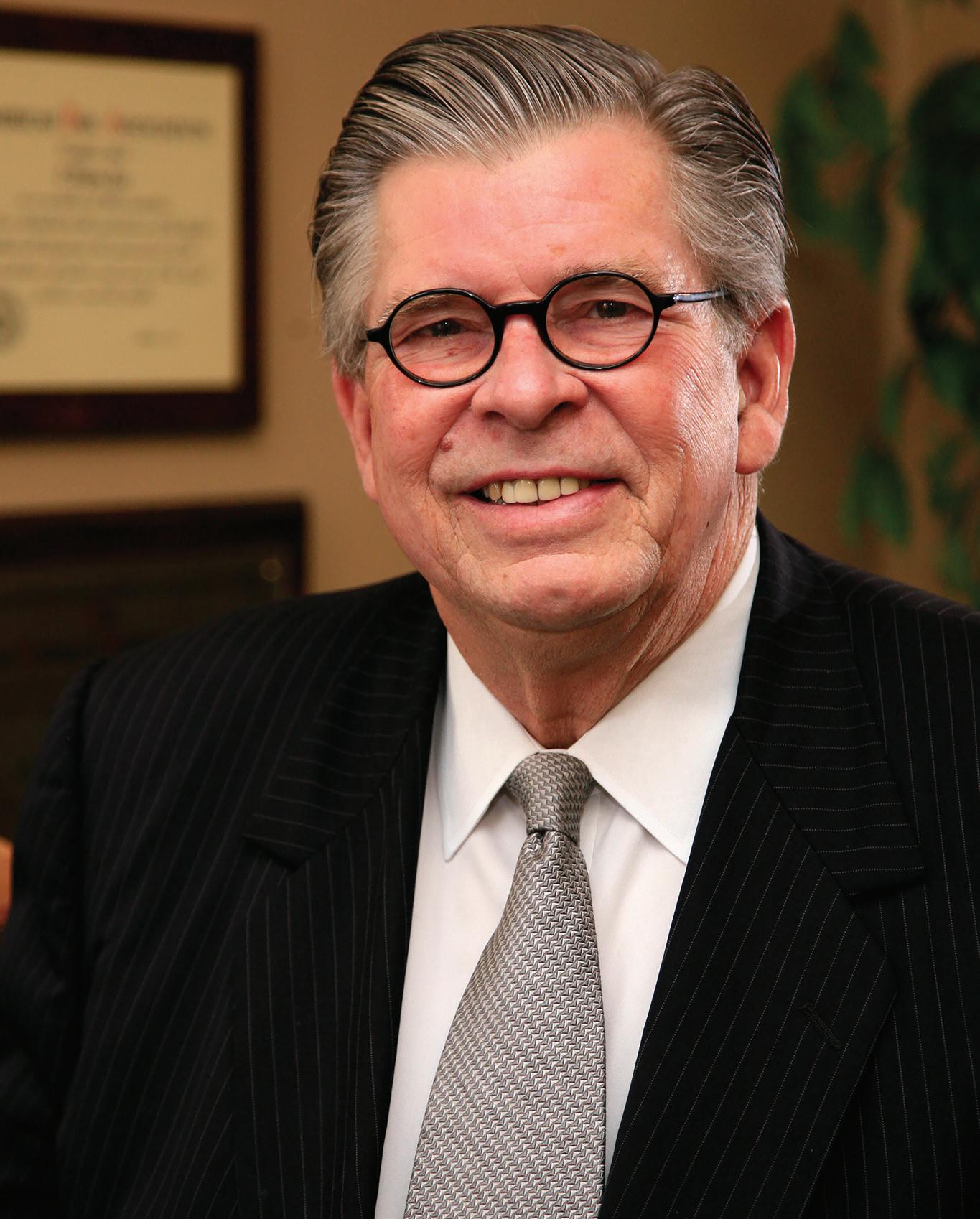

up for a better future can negatively affect your life once the marriage is dissolved.

All this is just one of the many reasons you should consult with an experienced attorney as soon as you know you’re getting divorced—or even sooner, if your marriage is in obvious turmoil. In addition to providing legal counsel, a good attorney knows how to quell clients’ emotional responses and sway them to act in a manner that will lead to better results. Talking to a therapist or family counselor can also help you control your emotions and learn useful tools for managing and improving your mental health.
In many marriages, it’s not uncommon for one spouse to have a better understanding of the couple’s finances and assets. Often, that person will know exactly how much money is in joint bank accounts and how well their investments are doing, while the other is oblivious to this information and contributes to the household and marriage in other ways. The spouse with the financial knowledge has a decided advantage here because they can cover these issues in their case strategy more quickly and thoroughly than the spouse who is out of the loop.
If you didn’t handle any of the finances, you must create an inventory of what you’ve acquired or accumulated during the marriage before attempting to split assets. This should include anything that can be considered an asset or liability—
bank accounts,
investment portfolios, retirement accounts, life insurance policies. Write down all the physical possessions you jointly own, too, even those you don’t necessarily want to keep.
It can be detrimental when couples decide they want to quickly divide their possessions in the early stages of the divorce, as this often leaves one spouse at a substantial disadvantage. This can be especially devastating in a highasset divorce because the spouse with greater awareness of the finances might attempt to conceal assets or “divorce plan” to maximize their value without the other spouse knowing.
Even if you aren’t involved in a highasset divorce, allowing your spouse to keep something seemingly minor—such as a comic book collection you helped them accumulate—so you can keep the nicer furniture or items you need to continue your hobbies, can prevent you from securing a fair share of what you’re entitled to under the law.
While you might not want to store your ex’s comic books in your new home after your divorce, some of the comics in the collection might one day be worth hundreds, even thousands of dollars. As a financial contributor to the collection, you deserve a portion of its value. To ensure an equitable outcome, spouses need to determine the current fair-market value of all their possessions.
If you have an estate plan that names your spouse the executor, trustee or beneficiary of a will or trusts, you need to revise it to reflect your current wishes now that you know you’re getting divorced. If you leave it as is, your wishes won’t be carried out after you pass away, and your former spouse may inherit what you initially left for them.
You can revoke your old will and execute a new one to make sure the inheritance your spouse would have received goes to the correct beneficiary. The same goes for trusts: Create new ones to make sure your ex can’t control assets you leave for other beneficiaries.
"It’s not uncommon for one spouse to have a better understanding of the couple’s finances and assets."
Hon. Alvin and Brian Zimmerman, father and son have been listed in The Best Lawyers in America® by BL Rankings: Hon. Alvin Zimmerman in Family Law since 2003 and Brian Zimmerman in Employment LawManagement since 2013. Brian is the managing partner of the Houston office of Spencer Fane LLP. Both are board certified by the Texas Board of Legal Specialization: Hon. Alvin Zimmermanin Family Law and Brian Zimmerman in civil litigation. Brian has won multi-million verdicts in Texas and other states and has been successful in defending clients in high stakes litigation cases. Gary Zimmerman, who practices with his father and brother in the firm, is fluent in Spanish and graduated with honors from Claremont McKenna. He concentrates his practice in the field of family law including divorce, children issues, pre-nuptial and marriage agreements and serves as a mediator in family law cases. Hon. Alvin Zimmerman is a former Texas State District Judge of both a family law court and later a civil district court. He is a Fellow in the IAM, CIArb, and AAML and has qualified as a Distinguished Credentialed Mediator by the TX Mediator Credentialing Association. He is also a panelist for complex matters with the American Arbitration Association, ICA and the CPR. He has arbitrated over 400 cases and mediated over 2000 cases He is the recipient of many professional awards for his family law and ADR practice. He also is the past chair of the both the Family Law and ADR Sections of the Houston Bar Association and past chair of the State Bar of Texas ADR Section.

People often become so entwined in the emotional aspects of divorce that they forget there are tax implications to any award of marital assets. It’s vital to understand that nearly every major financial decision you make has practical consequences.
Although some transactions related to a divorce are not taxable, you should consult an accountant or financial planner to address any potential tax effects of your divorce. It’s also important to note that if an IRS audit uncovers issues with returns you and your spouse previously filed together, you’re both potentially liable for tax debt.
Spouses can get assistance with their taxes from the federal government after they divorce. To qualify, you must be legally separated or divorced and pay your taxes.
To reach an equitable divorce agreement, both spouses need to adjust their expectations. If you’re combative over every issue because you both refuse to budge, you’ll end up in a courtroom and the divorce will drag on at a high cost to both of you.
Reaching a fair agreement requires some give and take from each side. Divorcing spouses need to approach negotiations in good faith and show up intending to make proposals that will help both
parties find middle ground. Do your best to be reasonable when discussing settlement terms and remember you’re not likely to get everything you want, whether it's full custody of your children or the cars or the house.
In addition to a lack of realism in negotiations, spouses often make the mistake of overlooking the fact that maintaining two households can cost more than they’re accustomed to spending. For example, you might be awarded the marital residence as you wanted; however, the financial support agreements in your settlement could mean you have less money to pay the mortgage or other expenses.
Financial planning is essential when you’re transitioning to a new lifestyle after a divorce. Spouses
who fail to set financial goals or devise a concrete plan for the assets they’re awarded tend to make poor decisions after the divorce and often find themselves lacking the resources they need to maintain their desired lifestyle.
Some people also have unrealistic expectations about retaining their health insurance. This typically happens when one spouse was covered by the other’s policy. This can be a major issue if you’re over 50 and divorce before you become eligible for Medicare, which occurs at age 65. Although you can remain on your former spouse’s policy through COBRA for up to 36 months, it will likely cost much more than what you previously paid. If you don’t think you can afford to pay for a new policy without help from your spouse, consider a legal separation, under which you might be able to keep the same health insurance during the division of assets.

Complicated procedures, tense negotiations and the hassle of simply enduring the process can lead people to make these and other costly mistakes. Divorce is never easy, but unforced errors will only compound your struggles.
Whether you know that divorce is inevitable or you were just served with papers, you need to speak with knowledgeable professionals who can assess all your legal and financial options and craft a feasible strategy that you can follow to ensure you don’t make mistakes that will hurt your future. •
"To reach an equitable divorce agreement, both spouses need to adjust their expectations."




Minyard Morris has limited its practice to family law for over 45 years and is proud of its recognition by The Best Lawyers in America®. We draw from over 270 years of combined legal experience of our 17 lawyers in creatively solving our clients’ issues and in understanding and achieving their goals and objectives.





Family Law
Family Law
Family Law Family Law
ESTATE PLANS CAN create difficult, unusual issues in divorce proceedings. These can vary significantly depending, among much else, on the type of plan that’s in place; whether one party is the beneficiary of the plan; and whether one or both parties created the plan.
Family law attorneys may also find themselves wading into unfamiliar waters without proper knowledge or training. Nowhere is this truer than in estate planning.
Such plans can be complex, of course. And although family law and estate planning often intersect, estate planning attorneys frequently know about clients’ potential options and pitfalls of which family law practitioners are simply unaware. Consulting with a qualified estate planning attorney can help protect your client’s interests during and after a divorce.
Parties entering into a premarital agreement—also known as a
prenuptial agreement or antenuptial agreement—will likely include both divorce and death provisions. The family law attorney should be careful to make sure that both areas are appropriately addressed. Further, once the premarital agreement is completed, the couple’s estate plans should provide for at least what the agreement covers.
Estate planning issues commonly arise in family law when one party is either the beneficiary of a trust or seeks to place their assets in trust after dissolution.
Assets held in trust, owned by trust: In general, assets held in a trust are not owned by either party but by the trust. A court does not have jurisdiction to award assets of a third party to one of the two parties in a divorce proceeding, particularly if there’s a spendthrift provision in the trust that limits a creditor’s ability to come after the trust’s assets, or if the trust is not named as a party in the

proceeding. Even if it is, a court may still be limited in what it can award if there’s a spendthrift provision.
The practitioner should become familiar with the laws in their jurisdiction regarding what authority a court has to invade a trust as part of a divorce proceeding. Often, a court’s ability to fashion relief with respect to assets in a trust is quite limited, though state laws vary.
Parties may also be limited in what they can agree to regarding assets in a trust. For instance, a trust beneficiary may not be able to agree to award the other party any of the trust’s assets—again, particularly if there’s a spendthrift provision.
Trust distributions and support issues: Spousal maintenance (also known as alimony) and child support are determined based on the income of both parties. When one party is a beneficiary of a trust, a common issue is whether distributions can be used to calculate child support and/or alimony.
Whether trust distributions can
It’s essential that family law practitioners consult with estate planning attorneys as they guide their clients through a marital breakup. Here’s what to keep in mind.
THE LAWYERS AT ROOP understand that three of the perils of divorce are harm the parties, and the parties’ net worth. We attempt to resolve the matter efficiently and concern ourselves with the cost of litigation, so as to protect from harm the children, the parties’ relationship, and the parties’ net worth. Many of our peers do not. Whether it is via litigation, mediation, or collaborative law, we are on your side. We are proudly ranked Tier 1 in Washington, D.C. for Family Law in the 2022 Edition of U.S. News - Best Lawyers® “Best Law Firms.”
The lawyers at Roop, Xanttopoulos Babounakis & Klam understand that three of the perils of divorce are harm to the children, the parties, and the parties’ net worth. We attempt to resolve the matter efficiently and concern ourselves with the cost of litigation, so as to protect from harm the children, the parties’ relationship, and the parties’ net worth. Many of our peers do not. Whether it is via litigation, mediation, or collaborative law, we are on your side. We are proudly ranked Tier 1 in Washington, D.C. for Family Law in the 2023 Edition of U.S. News - Best Lawyers® “Best Law Firms.”
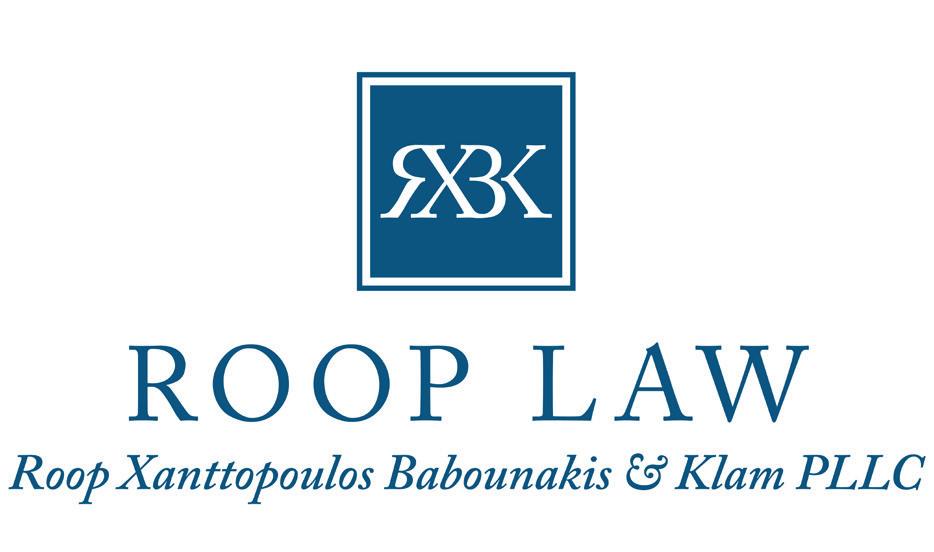
Divorce, child custody, visitation, litigation, mediation, collaborative divorce, child and spousal support; cases involving business valuation, complex assets and estates.
Divorce, child custody, visitation, litigation, mediation, collaborative divorce, child and spousal support; cases involving business valuation, complex assets and estates.
AWARDS AV
Preeminent rating of the MartindaleHubbell Bar Register, two lawyers listed for 2022 in The Best Lawyers in America® in Family Law, Northern Virginia, Ten Leaders, Super Lawyers & Washingtonian.

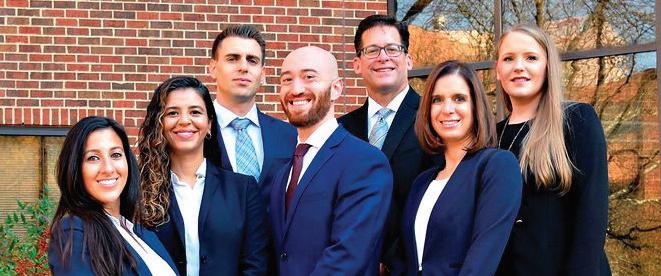
AWARDS AV
Preeminent rating of the Ma rtindaleHu bbell Bar Register, two lawyers listed for 2022 in The Best Lawyers in America© in Family Law, No rthern Virginia, Ten L ea ders, Super Lawyers & Washingtonian.
be considered part of an obligor’s ability to pay child support or alimony will likely turn largely on the nature and history of the distributions in question. Depending on the type of trust, distributions can consist of income, principal or both.
program with asset limitations. Distributions from the trust can then supplement a client’s income without jeopardizing their access to government assistance.
Transferring assets into trust: Finally, if a client intends to
not the only asset people tend to forget about in divorce proceedings. Bank accounts, retirement accounts, annuities and life insurance policies all have beneficiary designations that, if not carefully managed, could easily end up in the hands of an exspouse.
Distributions of any kind are then considered periodic payments if the amounts are consistently received. Frequently, the distribution will have to be formally received before the court can make an award with respect to it.
Recipients of trust income generally receive a form K-1 each year showing the amount and character of distributions. The parties’ tax returns and the trust document itself will be essential in arguing whether these distributions are consistent enough to be considered available for determining alimony or child support. A qualified estate planning attorney may be useful in analyzing more-complex trust documents.
Trust income and individuals with special needs: Another consideration for family law practitioners is whether their client would benefit from a special-needs trust, which enables a physically or mentally disabled or chronically ill person to receive trust income while preserving their eligibility for needbased government benefits such as Medicaid and Supplemental Security Income. Because the client does not own the underlying assets, he or she can still be eligible for a benefits
transfer assets into trust following dissolution, family law practitioners should consider working directly with estate planning attorneys to draft the final decree. Unlike most family law attorneys, estate planning lawyers know what language is needed to put the client’s estate plan into effect. Collaboration with an estate planning lawyer early in the process can save a family law practitioner from having to amend the decree—or, worse, their client being unable to distribute their assets as intended.
There’s still estate planning work to be done once the divorce has been finalized.
Updating beneficiary designations: State laws generally hold that once a couple is divorced, the exspouse loses all property rights by operation of law. Pensions, however, are governed by federal law, formally known as the Employment Retirement Income Security Act of 1974 (ERISA); state laws do not apply. If practitioners fail to update their client’s beneficiary designations, the ex-spouse could still inherit the asset. Unfortunately, pension plans are
Updating fiduciary appointments: Another reason to revise a client’s estate plan is to remove an ex-spouse from a fiduciary role. People getting divorced typically do not want their former spouse administering their estate. Updating executors, trustees and guardians may be critical to effectuating your client’s estate plan.
Clients will likewise want to remove their ex-spouse as an agent under their power of attorney. If a client loses capacity, particularly when a divorce is pending, they will need a trusted person who can continue the proceeding on their behalf.

Finally, those who don’t want their ex-spouse making medical decisions for them will likely need to revise their medical power of attorney or health care proxy. Depending on one’s state laws, medical powers of attorney may not be automatically revoked upon divorce. One can easily imagine a situation in which a client is involved in a terrible accident where life-and-death decisions need to be made. More likely than not, your client would not want their exspouse dictating their medical care.
Family law attorneys who undertake this process alone can easily overlook important factors, leading to negative outcomes for their clients. Given the complexity of these issues, it’s important to consult with a qualified estate planning attorney throughout the dissolution proceeding.
"If a client intends to transfer assets into trust following dissolution, family law practitioners should consider working directly with estate planning attorneys to draft the final decree."



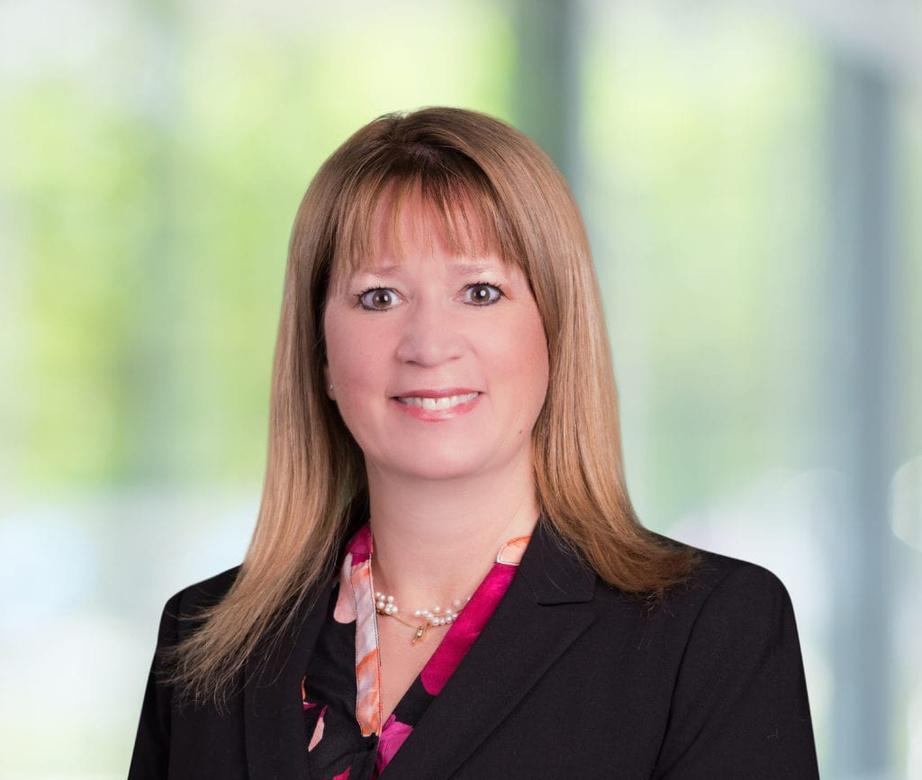




WHILE THE MERITS of having a last will and testament versus a revocable living trust are a common topic of debate, less frequently discussed are the consequences of not having a last will and testament at all.
It’s important to remember that a last will only disposes of assets you have in your name alone upon your death. The will does not dispose of assets titled jointly with another, with rights of survivorship, assets or life insurance that have named beneficiaries—as “in trust for accounts payable on death”— “transfer on death” accounts or retirement accounts (an IRA, 401(k) and the like). A last will enables you to state specifically how and to whom your solely titled assets (your estate, that is) are to be disposed of upon your demise. It can provide that the
assets be disposed of outright to the beneficiary or that they remain in trust for the beneficiary until a specific event has occurred or a certain time or age has been reached. Additionally, you can nominate the individual(s) or corporate entity—a bank or trust company, say—that you want to manage your assets, known as the executors and/or trustees. Once the will has been admitted to probate by the surrogate’s court in the county of your residence, the nominated executor or executors receive letters testamentary.
Once appointed by the court, the executor can then marshal the estate assets, pay any outstanding bills—funeral or medical expenses, credit card debt—or taxes, including personal and estate taxes. Once this is done, the executor can distribute the assets to the named beneficiaries.

…there’s no way for you to ensure your assets get distributed the way you would prefer. A guide to the consequences of exiting the stage without a last will and testament in New York.

Brinkley Morgan has been providing professional legal services throughout the State of Florida for nearly 50 years.








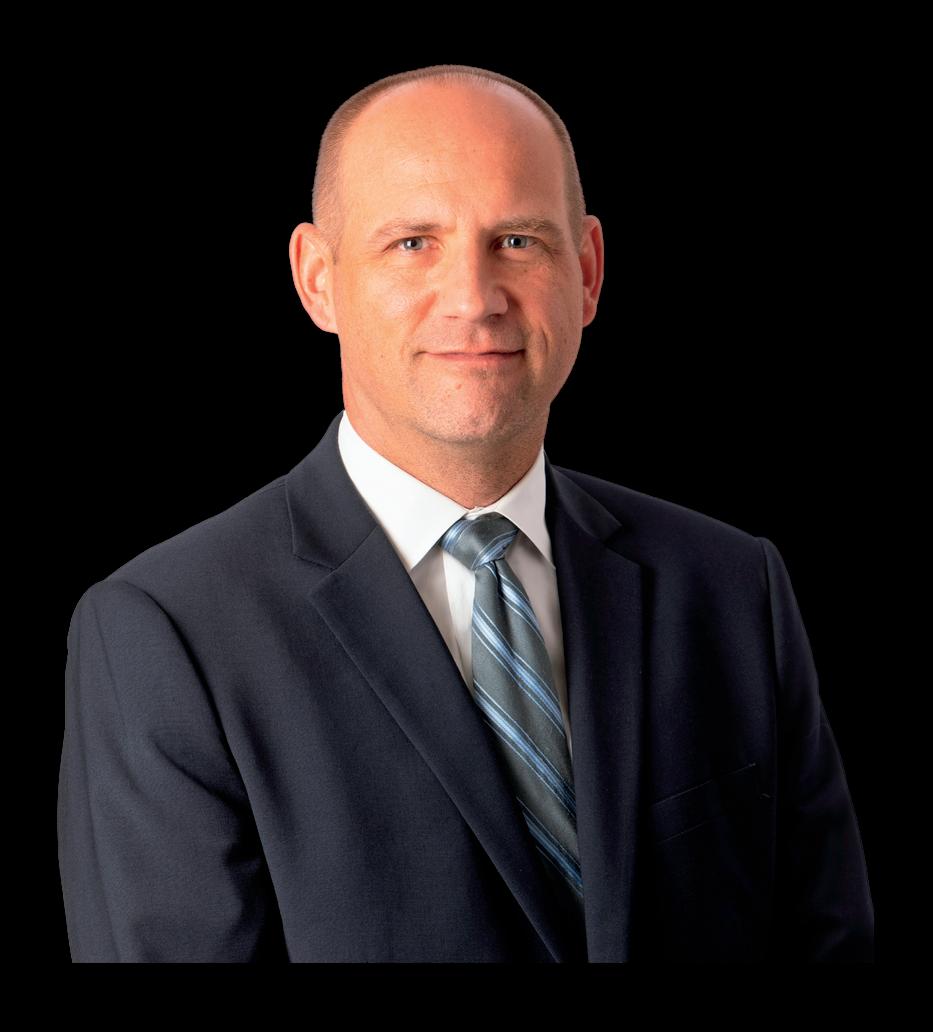
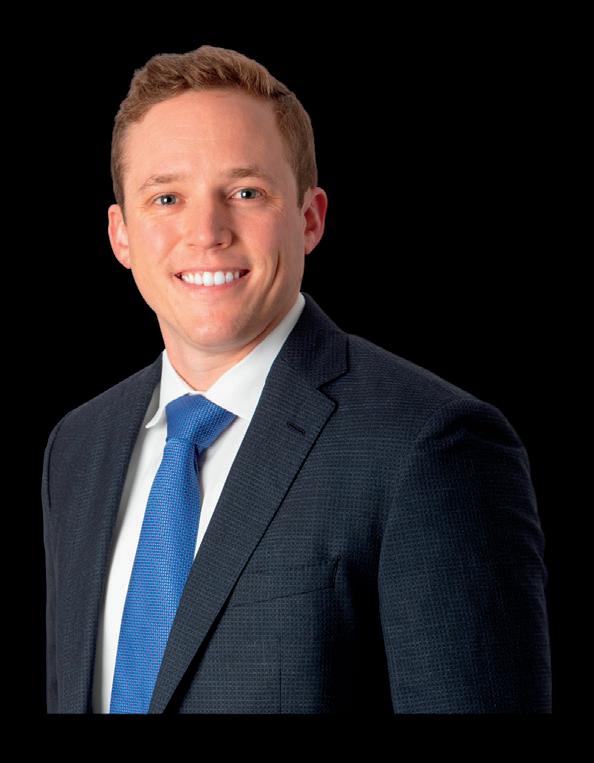


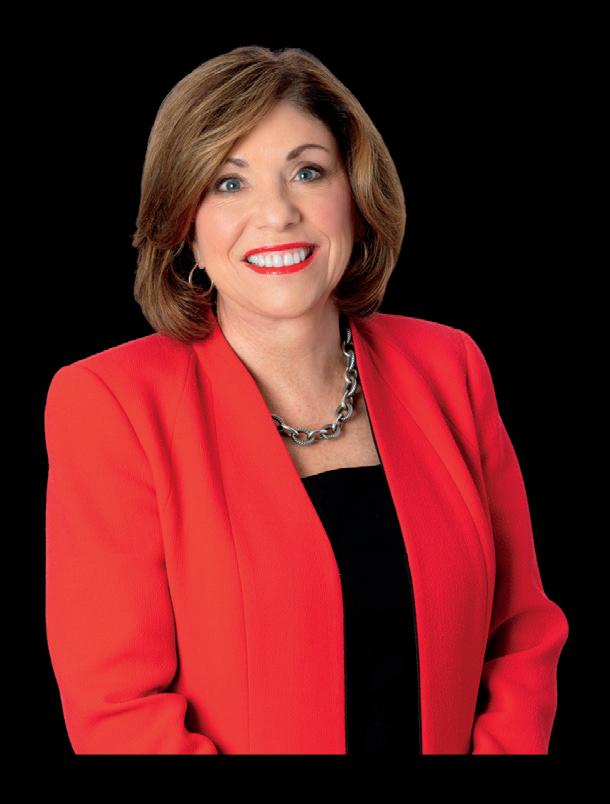


At Brinkley Morgan, the family law team regularly collaborates with experts in our business and business litigation department, our real
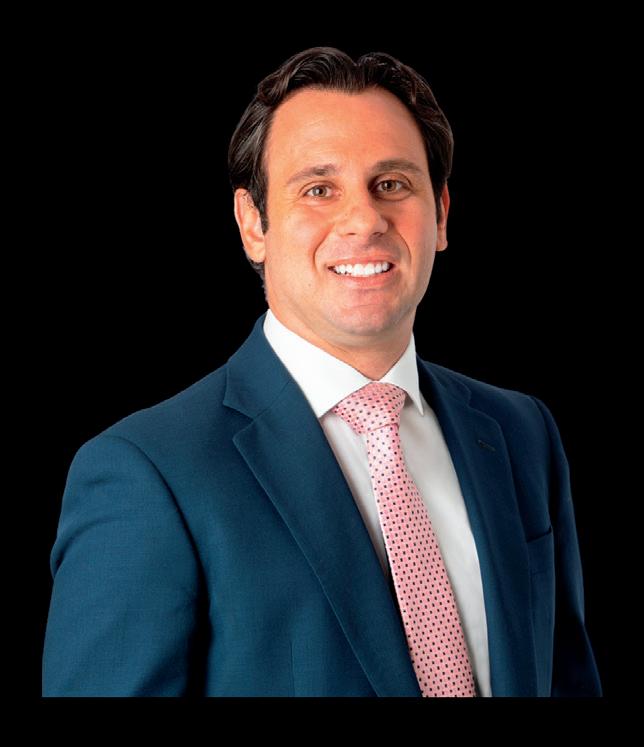
department and our trusts and estates department These in-house resources help us to develop effective strategies for the complex issues our clients encounter With confidence, we accept even the most difficult challenges by taking a proactive and
approach to meet each of our client’s unique personal
Fort Lauderdale • Boca Raton • brinkleymorgan.com
If you die with assets in your name alone (not jointly and with no named beneficiary), however, things will be vastly different. Without a last will, your assets will pass according to the laws of intestate distribution in New York, pursuant to the provisions of New York’s Estates, Powers and Trusts Law (EPTL). You will have lost the ability to decide to whom, and in what percentages, your friends and loved ones will receive your assets.

Under New York’s EPTL, for example, if you die with a surviving spouse and children, your spouse receives the first $50,000 and half of the balance, while your kids receive the remaining balance in equal shares. Had you always wanted a sibling or friends to receive part of your estate, you’d be out of luck.
Additionally, if you die without a last will and leave no surviving family, your estate will “escheat” to New York State. This means the state itself will become your beneficiary—an outcome the vast majority of New Yorkers would surely be horrified by. (It’s important to note that adopted children are treated the same as biological children under the rules of intestate distribution. Stepchildren and foster children
do not receive an intestate share.)
As if losing the ability to choose your beneficiaries and the amounts they receive isn’t bad enough, should you die without a last will, under New York’s Surrogate’s Court Procedure Act (SPCA), the person given priority to be appointed your estate’s administrator is to be determined by law. The priority order is your surviving spouse; children; grandchildren; your father or mother; siblings; and anyone who is a distributee (one who would stand to inherit assets, that is) who is eligible and who qualifies, with preference to the individual entitled to the largest share of the estate. If there are eligible distributees equally entitled to be appointed—when more than one child survives but no spouse does, for example—the court can grant letters of administration to one or more of them.
In short, the consequences of not having a properly drafted and executed last will are significant. You lose the ability to decide who will receive your estate and in what amounts, as well as who will be given the authority to manage and dispose of your estate upon your death. A last will and testament is imperative—don’t leave this world without it. •
“You will have lost the ability to decide to whom, and in what percentages, your friends and loved ones will receive your assets.”

Lee Rosenberg serves as trial and appellate counsel in the field of Matrimonial and Family Law throughout the New York metropolitan area and Long Island and is Board Certified in Family Trial Law by the National Board of Trial Advocacy. He seeks creative solutions to resolve matters by settlement, while still maintaining the important ability to litigate at trial. Recognition by his peers, has honored his selection as 2022 “Lawyer of the Year” in Family Law for Long Island, New York by Best Lawyers®.


Lee has been a National Vice President of the American Academy of Matrimonial Lawyers (“AAML”), and a member of the AAML’s New York Chapter Board of Managers, as well as a Chapter Vice President. He is also a Fellow of the International Academy of Family Lawyers. Lee serves on the Executive Committee of the New York State Bar Association’s Family Law Section and is Editor-in-Chief of the NYSBA’s Family Law Review. A former-Chair of the Nassau County Bar Association Matrimonial Law Committee, he was awarded that Bar Association’s 2013 Directors’ Award as Outstanding Committee Chair. He currently serves as the Chair of the Nassau County Bar Association’s Grievance Committee. A widely published author, his scholarly articles have been cited by New York’s trial and appellate courts. He has been widely quoted by the New York Law Journal on numerous issues in the area of matrimonial law. In addition to his trial and appellate practice, Lee serves as a Divorce Mediator and is trained in Collaborative Divorce Law. He has been repeatedly listed among The Best Lawyers in America® since 2013 for Family Law; as a New York Super Lawyer in family law; as one of the Ten Leaders in Divorce Law on Long Island, New York; and has a 5.0 out of 5 “AV Pre-Eminent” peer-reviewed rating with Martindale-Hubbell.
Lee is also a Lifetime Member of the AAML Foundation and a member of the Hofstra School of Law Center for Children, Families and the Law Board of Advisors. He is a Matrimonial Fee Dispute Arbitrator for the New York State Unified Court System. He also previously authored the majority of Domestic Relations Law Practice Insights for Lexis Nexis’ Consolidated Law Service New York Family and Matrimonial Practice Insights as well as the Filing and Drafting Tips for Lexis Nexis’ New York Family Law Forms.
The Supreme Court’s thunderclap Dobbs decision sent abortion policy nationwide into utterly unfamiliar terrain. The ruling also has a colossal effect on surrogates, intended parents and anyone involved in family planning given the patchwork of state laws likely to emerge.
By Justin SmulisonON JUNE 24, 2022 , the Supreme Court released its decision in Dobbs v. Jackson Women’s Health Organization , overturning the constitutional right to abortion granted by Roe v. Wade in 1973. Without federal protection for abortion, the matter is referred back to the states.
This opened the door for states to ban abortion outright, but it also had an enormous impact on
assisted reproduction and surrogacy programs—the practice of a woman carrying the biological child of another individual or couple. Family practitioners and legal professionals who provide counsel to intended parents, carriers and surrogacy and family-planning centers are exercising even more care than usual when approaching these topics’ legal hurdles given that protections vary from state to state.
Public data on surrogacy births in the U.S. is sparse. The Modern Family Surrogacy Center, based in California, estimates that more than 5,000 births were carried via surrogacy between 2004 and 2008.
But surrogacy agencies were already seeing a decline in carriers beginning in 2020 due to the pandemic, says Jennifer Fairfax, a
What’s a family law attorney to do?

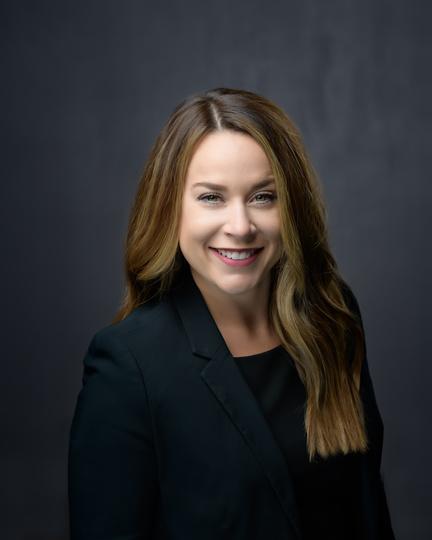
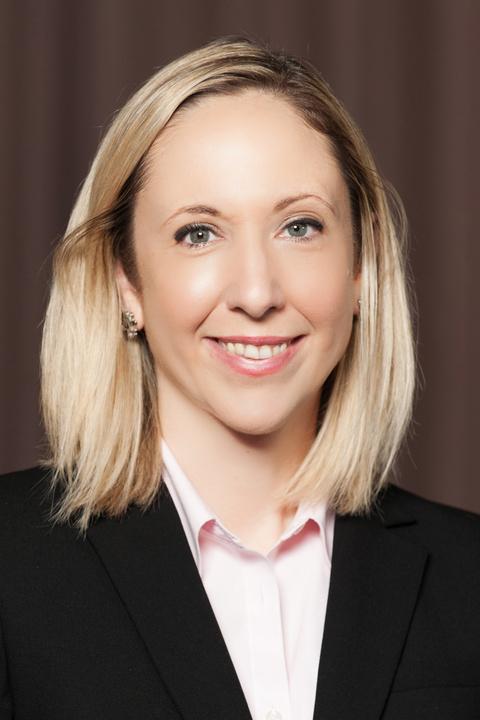



Maryland-based family lawyer who leads her own firm. Legal developments have only accelerated this trend. “In my conversations with many of the surrogacy programs across the country, they have shared that it’s definitely slower to match, which means there are fewer surrogates,” says Fairfax, who has been recognized by The Best Lawyers in America ® for Family Law in Maryland since 2015. “Pre-pandemic, it would take maybe six to nine months for an intended parent to match with a surrogate and move forward with a surrogacy plan. Now it’s 12 to 15 months to match. I’m not sure that the intended-parent population has increased, but that would definitely tell me that the surrogate population has slowed.”
According to the Center for Reproductive Rights located in New York City, 21 states have protected or expanded access to abortion. Three states and Puerto Rico have not yet passed definitive laws, and 26 states are either hostile to abortion (it is accessible but not legally protected) or have outlawed it entirely.
There may be a correlation between surrogacy, abortion laws and legal risk as well. Denver activist group Society of Family Planning released data in October 2022 showing the number of abortions performed monthly in the U.S. at 79,620—some 5,000 fewer than in April.
Angelo Sarno, a partner at Snyder Sarno D’Aniello Maceri da Costa in New Jersey, says the specific language of antiabortion laws will help make their effects clear. The health and rights of surrogates, though, are unquestionably at risk.
“Overly broad statutory language and definitions could, intentionally or not, implicate and even ban certain assisted reproduction technology
procedures, including in-vitro fertilization and surrogacy,” says Sarno, who has been recognized by The Best Lawyers in America for Family Law in New Jersey since 2014. “Thus, the irony and tragedy is that while antiabortion laws are intended to promote life, they may have a devastating impact on creating life.”
The paperwork involved in surrogacy has long been infamous for consuming months or even years. Following Dobbs, contracts must be pored over more carefully than ever to avoid accidentally triggering the laws of a hostile state.
Kimberly Surratt, founder of Surratt Law in Reno, Nevada, focuses almost
exclusively on reproductive law representing surrogates and intended parents; she has advised surrogacy clinics as well. Also licensed in California, Surratt says state guidelines regarding abortion influence the way she drafts surrogacy contracts, as it is common for parents and the carrier to live in different states.
“We see several Arizona surrogates who use fertility clinics in Nevada or collaborate with intended parents who live in Nevada or California,” says Surratt, a past chair of the State Bar of Nevada Family Law Section. “This is because in Arizona, surrogacy contracts are not enforceable.”
The Grand Canyon State was mired in confusion and controversy during the summer of 2022, when an Arizona judge revived a prestatehood ban on abortion that dates to the mid-1800s. The ruling rendered abortions illegal in the state at all times except when the carrier’s life is at risk. “Because of the interstate nature of our practice, we have to just chronically think about where parties live, the mix of the states and the different laws,” Surratt says. “The goal of surrogacy is not to get a woman pregnant in a location where she’s in jeopardy and can’t make major medical decisions for herself or the embryo that she’s carrying for third-party strangers.”
Eva N. Juncker is a partner in Cipriani & Werner’s Washington, D.C., metropolitan area offices and co-chair of the firm’s DMV (District of Columbia, Maryland, Virginia) Family Law practice group. Any party involved in family formation in the post- Dobbs era needs representation to navigate the changes, she says: “Portability is an even more critical factor now. As the surrogate moves or intended parents move or relocate, we get a whole lot more
"The health and rights of surrogates, though, are unquestionably at risk."
patchwork in the way of states’-rights applications on family formation and dissolution. It’s now become like a 4D chess board, and it’s incredibly complicated.”
How new laws will affect embryo donations, for example, is one factor on Juncker and her firm’s risk radar. “Public policy provisions are often in these contracts, whether it’s how we’re going to address custody of the embryos or the transfer of them in the surrogacy agreements,” Juncker says. “These contracts are enforceable as long as they’re not void as against public policy of the jurisdiction where they’re created. Elections will impact that. Public policy is set by case law, but it’s also set by the laws of each of the 50 states. This will potentially change a lot over the next six years.”
Navigating women’s health and reproductive rights in the U.S. has been likened to a labyrinth by many in the legal profession. Lawyers and firms need resources to provide the most current counsel to clients on either side of surrogacy and family planning.
The Academy of Adoption and Assisted Reproduction Attorneys (AAAA) is a nationwide organization dedicated to providing ethical practice of adoption and assisted-
reproduction law. AAAA Assisted Reproduction Technology (ART) director Nidhi Desai says the myriad legal challenges presented in 2022 kept the academy busy offering guidance online and at events. They also forced AAAA to consider the new and varied ways family planning legislation might expand.
“After Dobbs , we provided resources and town halls for members to talk about some of the problematic provisions and agreements, and how to start to deal with them,” says Desai, a partner at Desai & Miller in Chicago. “We had a midyear conference where we spent an entire day on various aspects of Dobbs. There are some things we can’t fix, but we can try to make sure that everyone is educated to the extent possible. For example, knowing that gestational surrogates in some states may have an ectopic pregnancy and it may take more time to receive health care because the decisions have made stakeholders afraid of being arrested or violating felonies if the fetus dies in utero. Those are the types of issues that are really scary right now.”
Regardless of one’s personal or political affiliation, the best way for lawyers to help clarify how laws will affect surrogacy and other forms of family planning, Surratt notes, is to volunteer at state legislatures. A past president of
the Nevada Justice Association, Surratt contributed to bills including Nevada Domestic Partnerships, the Uniform Collaborative Law Act and rewrites of many surrogacy statutes. “Exceptions are needed for medical emergencies,” she says. “That alone can be beneficial. But because of the extreme positioning, nothing’s falling in the middle. If lawyers want change, they will have to roll up their sleeves and get involved.”
Time invested now, Surratt says, will present more options for surrogates and intended parents, and it has the potential to strengthen the medical profession more broadly.
“There aren’t enough professional voices. The medical lobby and doctors are even angrier than women’s-rights lobbyists and advocates, because they can’t practice medicine effectively,” she adds. “They see a woman but may have to wait until she is just sick enough before they can do something to help her, possibly risking her life. The ectopic pregnancy conversation alone is difficult. A pregnancy cannot survive in a tube. It needs to be in the uterus, and any carrier will be at risk if laws prevent her from healthy options. Doctors’ ethics are on the line, and many who want to do the right thing are thinking ‘By law, my hands are tied, and I can’t practice medicine the way I need.’” •
In the era of sweeping tax reform, family businesses, particularly agricultural business, face many environmental and governmental risks. Outlined below are strategies to ensure family business survival in the face of these threats.
By John M. Goralka and David W. HoladayTHE FAMILY BUSINESS, in the best of times, faces unique challenges, particularly with business succession and estate planning. Moreover, the family business is often not merely a business but a lifestyle. The hard work, long hours and heightened risk can be common challenges. The business owner’s very identity is more likely to be tied to the success, or failure, of the family business.
This is particularly evident for agricultural or farm businesses. The family farm is connected to the land, which is critical to success. In California, where our firm is based, the news is replete with stories of fires and critical water shortages as our megadrought continues.
In addition to such forces of nature, family farms and other family businesses face another threat: An increasingly inhospitable tax environment. First, let’s examine some of the changes in the wind.
This examination is timely since President Biden signed the Inflation Reduction Act of 2022 into law on August 16, 2022.
Here are the main provisions:
• Creation of a 15% corporate minimum tax rate: Corporations with $1 billion or more in income will have a new tax rate of 15%, but taxes on individuals and households will not change.
• Prescription drug price reform: Medicare will now be able to negotiate the price of certain
prescription drugs, which should lower the price beneficiaries will pay for their medications.
Medicare recipients will have a $2,000 cap on annual out-ofpocket prescription drug costs starting in 2025.
• IRS tax enforcement: The bill invests $80 billion in the IRS to be used to hire more staff and invest in technology over the next 10 years.
• Affordable Care Act (ACA) subsidy extension: Currently, medical insurance premiums under the ACA are subsidized by the federal government to lower premiums. These subsidies were scheduled to expire at the end of 2022 but will now be extended through 2025.
• Energy security and climate change investments: The bill includes numerous investments in climate protection, including tax credits for households to offset energy costs, investments in clean energy production and tax credits aimed at reducing carbon emissions.
These new laws will probably not adversely affect most small business and farm owners. This is welcome news since there continues to be a plethora of other obstacles to circumnavigate.

What can you, as a business owner, do to deal with all these changes? Plan, plan, plan. The proposed changes underscore the need for careful planning with all members of your team. Your attorney, tax professional and financial adviser each have a different perspective and different contribution to your long-term survival and success. Here are some ideas to consider.
Planning for the sale of a business should happen well before the desired sale date. First, planning is needed to position the company to receive the highest possible value at sale. A team should be established to review how a buyer would value
that business, and then the current operations should be adjusted to enhance that value.
Some family businesses will be affected more than others with these income tax changes, including the potential loss of the step up in basis, coupled with the changes to property tax (and for those in California, the virtual loss of the parent-child exclusion for property tax). These changes may have a greater effect on the farming and agricultural (AG) businesses.

AG businesses are dependent on land ownership and are often designed for multiple generations. We already lost many retirement planning opportunities with the Secure Act, which took away the ability to stretch and defer tax on retirement benefits for multiple generations. Many of the proposed tax changes are triggered if income of a stated amount is reported, such as $450,000 for high-income taxpayers or $1 million for higher capital gains tax. The elimination of stretch IRAs will make it more likely for the business owner to be subject to those higher taxes, causing a cascading effect. In addition, a proposal under the Biden administration would restrict the ability to exchange real property on a tax-free basis under IRC Section 1031 for amounts over $500,000. These restrictions could be problematic for the family business owner, particularly AG businesses, tied to the land.
But there are ways to help blunt those tax effects. Certain taxadvantaged devices or tools, many that we have used for years, will become more effective with higher tax rates and changes. Many of these tools will be used differently or in combination with other techniques. These tools are often broken into charitable and non-charitable techniques:
• Traditional charitable tools include charitable lead annuity trusts (CLATs), charitable
remainder trusts (CRTs) and pooled income funds (PIF).
• Traditional non-charitable tools would include intrafamily installment sales, Qualified Personal Residence Trusts (QPRT), Grantor Retained Annuity Trusts (GRAT) and NING trusts (which stands for Nevada Incomplete-gift Non-Grantor trusts).
•
For AG or farm businesses, an enhanced installment sale permits the client to defer capital gains for 30 years. This approach can provide approximately 93.5% of the sale price in cash to the seller without the need to invest in like-kind property. This
strategy, while effective for AG and farm businesses, is generally not appropriate at this time for other types of businesses.
•
This strategy allows a seller to sell all or a portion of the business to a “related-party” trust for the benefit of the kids and/or grandkids. If the trust holds the property for at least two years and one day prior to the sale to a third-party buyer, the trust can employ the installment sale method and defer the capital gains taxes for up to 30 years.
The partnership basis allocation rules in the Internal Revenue Code provide a unique opportunity to avoid capital gains of the sale of an appreciated asset. This solution may be appropriate for the sale of an appreciated asset with a lowincome tax basis purchased by or contributed to a Limited Liability Company or a partnership more than seven years ago. This method is for assets being sold that have been held by the partnership for at least seven years. This strategy is effective without regard to whether the business was inherited. The key is to distribute a high-basis asset to
"What can you, as a business owner, do to deal with all these changes? Plan, plan, plan."
the partners prior to the sale coupled with an election under IRC Section 754 seeking adjustment under IRC Section 734(b). The high-basis asset may even be acquired. With that election, the high basis of the asset distributed is allocated between the asset distributed and the low-basis asset to be sold. Essentially 50% of the gain otherwise taxed can be insulated from tax.
•
A defined benefit plan can be custom designed and built. People all too often think that all plans or techniques with a common name will provide the same benefit. Depending on the circumstances, a specialist may be able to design a plan with large deductible contributions that far exceed typical retirement plan contribution limitations. This may offer a tremendous way to accumulate wealth.
•
A client with a net worth in excess of $10 million may have the ability to obtain millions of dollars in life insurance with no out-of-pocket cost. The cost of the insurance is entirely paid by the issuance of investment-grade bonds. The client posts collateral but would have no out-of-pocket cost whatsoever. The insurance would build a cash value over time. That cash value can provide substantial after-tax (tax-free) streams of income in later years as well as provide future benefits to the family in addition to the death benefit. This can be used for estate planning or business succession purposes.
•
Qualified Opportunity Zone investments (“QOZ”) can be used to avoid or even eliminate capital gains tax. Many believe that QOZ investments must be tied to a professional manager, which results in losing control over your funds and
investments. We successfully created LLCs for QOZ funds to be managed by our clients so they retain complete control over all investments and funds. For these clients, they maintain complete control and their funds, and investments are not mixed with the investments for other persons.
• Qualified Small Business Stock IRC Section 1202 provides that certain C Corporations can take advantage of the Qualified Small Business Stock exemption from federal capital gains up to $10 million or 10 times the aggregate basis. Many advisers are unaware of this benefit and fail to determine if the shares qualify or consider that in the sale negotiations.
• Charitable Lead Annuity Trust (CLAT)
In the charitable arena, a Charitable Lead Annuity Trust (CLAT) can be designed to generate a charitable income tax deduction equal to 100% of the contribution. The CLAT makes annual distributions to charity for a defined term, typically around 20 years. At the end of the term, the assets in the trust are returned to the client or passed to the client’s family. The client chooses which charity or charities receive the annual distributions, and the client can maintain control over the assets during the term. The client can retain control over the investment throughout the entire trust term.
A pooled income fund is another often overlooked charitable tool that can provide the appropriate client a greater income tax deduction than a charitable remainder trust. The client retains all income for life (or, on a multi-generational approach, the client, their spouse and their kids). The client would be able to retain control of the investments throughout
the pooled income period.
There are many challenges to the success and even continued viability of the family business in the years to come.
First, a recognition that for many, the family business is a lifestyle. While the loss of the step up in basis or a higher capital gains tax rate would be a significant challenge, there are many more challenges with equal or perhaps greater impact. The real issue is the synergistic effect of all of these coming together. This is happening now when the greatest transfer of wealth between generations is in its infancy. Baby boomers are expected to transfer $30 trillion of wealth to younger generations in the next few years.
All of this underscores the need for flexibility in your income, tax planning and family estate plan. Financial planning for business owners will become increasingly complex. This type of planning should be team-based and multidisciplinary, including the lawyer, tax professional, accounting professional and financial adviser, as each brings an important yet different perspective. Above all, the focus should be on the client’s overall business succession planning and not simply on lower taxes.
Even though the tax environment seems to be constantly changing and challenging, there are still many opportunities available. Taking advantage of these opportunities requires more initiative for clients to seek competent counsel and to get out in front of their transaction deadlines.
To read this editorial piece in its entirety and for more on the writers, click here.
•
GLENN KOOPERSMITH
Glenn S. Koopersmith
KEITH, SHAPIRO, & FORD
Richard P. Ford
LAW OFFICES OF BARRY J. FISHER
Barry J. Fisher
MORAN & BRODRICK
Robert H. Brodrick
REISMAN PEIREZ REISMAN & CAPOBIANCO
Michael J. Angelo, Glenn S. Forstner, Nancy E. Gianakos, Seymour J. Reisman
RIEGER Kieth I. Rieger
ROBERT M. PRESTON
Robert M. Preston
RUBIN & ROSENBLUM
Debra L. Rubin
SALTZMAN CHETKOF & ROSENBERG
Lee Rosenberg
SCHLISSEL OSTROW KARABATOS
Elena Karabatos, Lisa R. Schoenfeld
STEMPEL, CATTERSON, LOFRUMENTO, CARLSON, BIONDO
Amanda L. Carlson, Vincent F. Stempel, Jr.
THE LAW FIRM OF A.J. TEMSAMANI A.J. Temsamani
THE LAW OFFICE OF VESSA WILENSKY
Kenneth B. Wilensky
THE SAUL LAW FIRM
Gail B. Saul
WINTER & GROSSMAN
Robert S. Grossman
WISSELMAN, HAROUNIAN & ASSOCIATES
Jerome A. Wisselman
SAMUELSON HAUSE
Wendy B. Samuelson
LAW OFFICES OF BARRY J. FISHER
Barry J. Fisher
FAMILY LAW ARBITRATION
FAMILY LAW MEDIATION
REISMAN PEIREZ REISMAN & CAPOBIANCO
Michael J. Angelo
SAMUELSON HAUSE Wendy B. Samuelson
VISHNICK MCGOVERN MILIZIO
Joseph Trotti
WINKLER KURTZ
James R. Winkler
WISSELMAN, HAROUNIAN & ASSOCIATES
Jerome A. Wisselman
BOND, SCHOENECK & KING
Charles J. Groppe, Andrea Hyde**
BURNER LAW GROUP
Nancy Burner
CONA ELDER LAW Melissa Negrin-Wiener
DAVIDOW, DAVIDOW, SIEGEL & STERN
Lawrence Eric Davidow
FARRELL FRITZ
GEMELLI GROSS SHAPIRO & MARINO
John A. Gemelli
GRANT + APPELBAUM
Patricia A. Grant
GREENBAUM & DORAN Sheldon M. Greenbaum
GREENSPOON MARDER
Arthur D. Ettinger, Diane Steiner
HENNESSEY & BIENSTOCK Peter Bienstock
KASOWITZ BENSON TORRES
Jennifer Falstrault, Kelly A. Frawley, Emily S. Pollock
KATSKY KORINS
Marcy L. Wachtel
KENNETH DAVID BURROWS, ATTORNEY-AT-LAW Kenneth D. Burrows
KRAUSS SHAKNES TALLENTIRE & MESSERI
Caroline Krauss, Valentina Shaknes
LAW OFFICES OF JOHN A. KORNFELD John Kornfeld
LEE ANAV CHUNG WHITE KIM RUGER & RICHTER
Aimee L. Richter, Judith E. White
MANTEL MCDONOUGH RISO
Allan D. Mantel, Kevin M. McDonough
MAURA A. SMITH LAW OFFICES
Maura A. Smith
MCLAUGHLIN & STERN Linda Rosenthal
MICHELE A. KATZ Michele A. Katz
MICHELE TORTORELLI, ESQ. Michele D. Tortorelli
MOSBERG SHARMA STAMBLECK GROSS
Michael A. Mosberg, Peter Stambleck
MOSES & SINGER Rebecca A. Provder
MOSES ZIEGELMAN RICHARDS & NOTARO
Robert H. Moses, Andrea Ziegelman
MYRNA FELDER Myrna Felder
NEWMAN LAW GROUP Louis I. Newman
OFFICE OF ELYSE S GOLDWEBER Elyse S. Goldweber
PARMET ZHOU & DENNEY Briana Denney
PAUL ERIC RUDDER, ESQ. Paul Rudder
PHILLIPS NIZER Elliot J. Wiener
PRYOR CASHMAN Karen M. Platt, Judith L. Poller, Ronnie Schindel, Donald L. Schuck
RABIN SCHUMANN AND PARTNERS
Amanda Laird Creegan
ROSENTHAL & HERMAN William C. Herman
ROWER Alyssa Rower
SCHWARTZ SLADKUS REICH GREENBERG ATLAS
Barry Abbott, Alton L. Abramowitz, Leigh Baseheart Kahn
FOX ROTHSCHILD
Jerald David August, John D. Dadakis**, Abbe G. Shapiro
FRANKFURT KURNIT KLEIN & SELZ
Barbara E. Shiers, Linda J. Wank
FRIED, FRANK, HARRIS, SHRIVER & JACOBSON Brad J. Richter
FULTON VITTORIA David P. Callahan
GOETZ FITZPATRICK Alison Arden Besunder*
GREENBERG TRAURIG
Linda B. Hirschson
HERRICK, FEINSTEIN
Carolyn R. Caufield, Christina M. Mason HODGSON RUSS Paul R. Comeau
HOLLAND & KNIGHT
Donald A. Goldsmith, Mark E. Haranzo
JOHN SILBERMAN ASSOCIATES Martha Gray Billman
KATSKY KORINS
Barbara Lynn Pedersen
KATTEN
Ronni G. Davidowitz, Joshua S. Rubenstein, Kathryn von Matthiessen
KELLEY DRYE & WARREN Robert E. Crotty*, William C. Heck*
KIRKLAND & ELLIS Christiana Lazo
KLEINBERG, KAPLAN, WOLFF & COHEN Jeffrey B. Kolodny, James R. Ledley, Bruce D. Steiner
KOSTELANETZ Ian Weinstock
KOZUSKO HARRIS DUNCAN Rebecca Holloway Dent, Rashad Wareh
LAW OFFICES OF ALBERT KALTER Albert Kalter
LAWRENCE NEWMAN Lawrence Newman
LOEB & LOEB Jerome L. Levine**, Jonathan J. Rikoon**, Laurie S. Ruckel, Cristine M. Sapers, Bruce J. Wexler
LOWENSTEIN SANDLER Warren K. Racusin
MARKEWICH AND ROSENSTOCK Eve Rachel Markewich*
MATTHEW J. NOLFO AND ASSOCIATES Matthew Nolfo
MCDERMOTT WILL & EMERY N. Todd Angkatavanich, Elyse Kirschner, Carlyn S. McCaffrey, Jay E. Rivlin
MCLAUGHLIN & STERN T. Randolph Harris**, James M. Kosakow, John C. Novogrod**, Barbara A. Sloan**
MILBANK Austin Bramwell, Georgiana J. Slade**, James S. Sligar**, Jessica D. Soojian, David J. Stoll**
MORRISON COHEN Darcy M. Katris
MOSES & SINGER Gideon Rothschild**
John J. Barnosky**, Ilene S. Cooper**, Eric M. Kramer, John R. Morken*, Eric W. Penzer*, Frank Santoro*
FELDMAN KRAMER MONACO
Frank L. Buquicchio
GARFUNKEL WILD
Doris L. Martin
HARRIS BEACH Roy W. Breitenbach
MAKOFSKY LAW GROUP Ellen G. Makofsky
MCCOYD, PARKAS & RONAN Bill P. Parkas*
MELTZER, LIPPE, GOLDSTEIN & BREITSTONE
Stephen Breitstone, Jeffrey A. Galant**, Avi Z. Kestenbaum
RIVKIN RADLER
Jean Hegler, Patricia C. Marcin, Wendy H. Sheinberg
RONALD FATOULLAH & ASSOCIATES
Ronald Fatoullah**
RUSKIN MOSCOU FALTISCHEK
Michael K. Feigenbaum**
RUSSO LAW GROUP Marie Elena Puma, Vincent J. Russo
STUTMAN STUTMAN & LICHTENSTEIN Dana M. Stutman, Michael D. Stutman
TAUB & LEWIS Malcolm S. Taub
TEITLER & TEITLER Jamie Weiss
THE LAW OFFICES OF MARK I. PLAINE Mark I. Plaine
WARSHAW BURSTEIN Alexis Cirel, Eric I. Wrubel
NORTON ROSE FULBRIGHT Philip J. Michaels, Leslie J. Schreyer
OLSHAN FROME WOLOSKY Stephen L. Ferszt
PATTERSON BELKNAP WEBB & TYLER John Sare
PAUL, WEISS, RIFKIND, WHARTON & GARRISON Alan S. Halperin, Loretta A. Ippolito, John J. O'Neil
PERKINS COIE Lois Tilton
FAMILY LAW MEDIATION
BERKMAN BOTTGER NEWMAN & SCHEIN Jacqueline Newman
BERNER LAW & MEDIATION GROUP Adam Berner
ABRAMS FENSTERMAN Ellyn S. Kravitz
AKERMAN Paul Collins
AKIN GUMP STRAUSS HAUER & FELD Seth D. Slotkin
ABRAMS FENSTERMAN
RoseAnn C. Branda
ALLEGAERT BERGER VOGEL John F. Zulack
ALTER, WOLFF & FOLEY
Eleanor B. Alter, Jenifer J. Foley, Adam John Wolff
AMINI Eric A. Seiff
AMY SALTZMAN
Amy Saltzman
ARONSON MAYEFSKY & SLOAN
David Aronson, Allan E. Mayefsky, Karen L. Robarge, Pamela M. Sloan
BENDER & CRANE Susan L. Bender
BERKMAN BOTTGER NEWMAN & SCHEIN
Barry Berkman, Michael Fried, Jacqueline Newman, Evan Schein
BIKEL ROSENTHAL & SCHANFIELD
Dror Bikel, Karen B. Rosenthal
BLANK ROME
Ryan J. Casson, Marilyn B. Chinitz, Alan R. Feigenbaum, Donald Frank, Steven Goldfeder, Norman S. Heller, Sophie Jacobi-Parisi, Stephen P. McSweeney, Dylan Mitchell, Morgan Mouchette, Sheila G. Riesel
BRONSTEIN VAN VEEN
Peter E. Bronstein
BUCHANAN INGERSOLL & ROONEY
Daniel Z. Rivlin
CHEMTOB MOSS FORMAN & BEYDA
Joshua Forman, Susan Moss, Benjamin E. Schub
COHEN CLAIR LANS GREIFER THORPE & ROTTENSTREICH
Michael Calogero, Bernard E. Clair, Robert Stephan Cohen, Jad Greifer, Deborah E. Lans, Dan Rottenstreich, Howard P. Roy, Mara T. Thorpe
DOBRISH MICHAELS GROSS
Robert Z. Dobrish, Nina S. Gross, Robert S. Michaels
DONOHOE TALBERT
Paul M. Talbert
GARR SILPE Ira E. Garr
WINDELS MARX LANE & MITTENDORF David A. Brauner, Denise L. Iocco
WITHERSWORLDWIDE Ivan A. Sacks
AFFRONTI Francis C. Affronti
BARNEY & BARNEY
Brian J. Barney
DAVIDSON FINK Gregory J. Mott
HEISMAN NUNES & HULL Lewis J. Heisman
INCLIMA LAW FIRM Charles P. Inclima
KAMAN, BERLOVE, MARAFIOTI, JACOBSTEIN & GOLDMAN Richard G. Curtis
OSBORN, REED & BURKE
Vincent M. Ferrero
SUZANNE L. BRUNSTING Suzanne L. Brunsting
SUZANNE L. BRUNSTING Suzanne L. Brunsting
ADAMS LECLAIR
Anthony J. Adams, Jr.*
BARCLAY DAMON
Terrance W. Emmens, Rachelle Nuhfer, Karen Schaefer
BOND, SCHOENECK & KING Cressida A. Dixon, Edward C. Radin
BOYLAN CODE
Michael F. Buckley, Ralph J. Code III, Warren H. Heilbronner
GALLO & IACOVANGELO Elena F. Cariola, Eugene M. O'Connor**
HARRIS BEACH
Christopher A. DiPasquale**, Audrey Patrone Peartree**
HARTER SECREST & EMERY
Peter H. Abdella*, Anthony T. Lee, Martin W. O'Toole
LAW OFFICES OF PULLANO & FARROW
Jason P. Livingston, Christian N. Valentino*
MCCONVILLE CONSIDINE COOMAN & MORIN Michael F. McConville
NIXON PEABODY Stephanie T. Seiffert
THE CICERO LAW FIRM
Amanda C. Agins, Jill M. Cicero
TORRES LAW OFFICE Jason P. Torres
TREVETT CRISTO Don H. Twietmeyer
WOODS OVIATT GILMAN
Philip L. Burke**, Gordon S. Dickens**, R. Thompson Gilman**, Lorisa LaRocca*, John F. Liebschutz
FAMILY LAW
ALDERMAN AND ALDERMAN, ATTORNEYS AT LAW Edward B. Alderman, Richard B. Alderman
FIELD & CUSTER Deborah K. Field
BALDWIN, SUTPHEN & FRATESCHI Robert F. Baldwin, Jr.**
ARENTFOX SCHIFF Brian K. Janowsky, Stephen Liss, Kevin Matz LL.M.
BAKER MCKENZIE Glenn G. Fox**
BC DAVENPORT Justin H. Jenkins*
BLANK ROME Richard J. Miller, Jr.**, Peter C. Valente, Sean R. Weissbart
CADWALADER, WICKERSHAM & TAFT Robert C. Lawrence III
CAHILL GORDON & REINDEL
Joan Murtagh Frankel
CARTER LEDYARD & MILBURN
Edmund Behan, Jerome J. Caulfield, Michael I. Frankel**, Stephen F. Lappert, Daniel J. McSwiggan
CLEARY GOTTLIEB STEEN & HAMILTON
Judith Kassel, Steven M. Loeb
COLE SCHOTZ Gary A. Phillips
COOPER LEVENSON Joseph C. Mahon
CRAVATH, SWAINE & MOORE
David S. Finkelstein
CURTIS, MALLET-PREVOST, COLT & MOSLE
Michael S. Schwartz, Robert W. Sheehan
DAVIDSON, DAWSON & CLARK
Eric W. Hager, James F. Kelly, Jayne M. Kurzman, Gloria S. Neuwirth, Alan D. Seget
DAY PITNEY
Carl A. Merino, Dina Kapur Sanna, G. Warren Whitaker
DECHERT Lee D. Caney
DENTONS U.S. Brit L. Geiger, Brian E. Raftery
DORSEY & WHITNEY Jonathan M. Herman*
DUANE MORRIS Michael D. Grohman
EMERY CELLI BRINCKERHOFF & ABADY Daniel J. Kornstein*
FARRELL FRITZ
Neil V. Carbone, Brian P. Corrigan*, Daniel S. Rubin**
FORMAN & SHAPIRO Stuart L. Shapiro*
PHILLIPS NIZER Michael W. Galligan, Donald P. Perry PIERRO, CONNOR & STRAUSS Caryn B. Keppler, Peter J. Strauss** PILLSBURY WINTHROP SHAW PITTMAN Elizabeth H.W. Fry
PROSKAUER ROSE Stephanie E. Heilborn, Steven Holinstat*, Henry J. Leibowitz, Jay D. Waxenberg**
PRYOR CASHMAN Richard L. Kay, Daniel L. Kesten REDDY, LEVY & ZIFFER John J Reddy, Jr.
REED SMITH Cheryl E. Hader
SCHLESINGER LAZETERA & AUCHINCLOSS Andrew S. Auchincloss**, Thomas P. Gannon, Jr., Lianne Lazetera, Richard S. Rothberg, Sanford J. Schlesinger**, Jonnie Strong
SCHNADER HARRISON SEGAL & LEWIS Paul Van Horn
SCHULTE ROTH & ZABEL Robert M. Abrahams*, Kim E. Baptiste, Susan C. Frunzi, Taleah E. Jennings*, Catherine Grevers Schmidt, Howard F. Sharfstein, William D. Zabel**
SCHWARTSMAN LAW GROUP Marianna Schwartsman
SEYFARTH SHAW William Norden
SHEARMAN & STERLING C. Jones Perry, Jr.
SIMPSON THACHER & BARTLETT Laura M. Twomey
SKADDEN, ARPS, SLATE, MEAGHER & FLOM Amy Erenrich Heller, Ivan Taback
SMITH, GAMBRELL & RUSSELL
Neal T. Dorman, Dana L. Mark, Svetlana Zagorina
SOLOMON BLUM HEYMANN
Charles F. Gibbs**
STEPTOE & JOHNSON
Jasmine Campirides, Beth D. Tractenberg
STERN TANNENBAUM & BELL
Jonathan R. Bell
STROOCK & STROOCK & LAVAN
Etta Brandman*, Anita S. Rosenbloom**
SULLIVAN & CROMWELL
James I. Black III, Zena M. Tamler, Basil P. Zirinis III**
SULLIVAN & WORCESTER
Constantine P. Ralli
TANNENBAUM HELPERN SYRACUSE & HIRSCHTRITT
Yolanda Kanes*
WHITE & CASE
Cecily P. Maguire
WIGGIN AND DANA
Robert W. Benjamin
WILLKIE FARR & GALLAGHER
Ani Hovanessian, David J. McCabe, David J. Posner
BARCLAY DAMON Marcy R. Dembs
BOND, SCHOENECK & KING James E. Mackin, Martin A. Schwab
BOUSQUET HOLSTEIN Christine Woodcock Dettor, David A. Holstein
COSTELLO, COONEY & FEARON Alicia S. Calagiovanni, Michael E. O'Connor**
HANCOCK ESTABROOK Cora A. Alsante**, Michael L. Corp
MACKENZIE HUGHES Gay M. Pomeroy
MELVIN & MELVIN Richard M. Storto
BODNARMILONE
FAMILY LAW
Peter O. Bodnar, John P. Frucco, Pamela J. Jenson, Lydia A. Milone
BRAUNSTEIN & ZUCKERMAN Lawrence Jay Braunstein
CARTON & ROSOFF Robin D. Carton
ELLIOTT SCHEINBERG Elliott Scheinberg
FREDMAN BAKEN & NOVENSTERN Ellen Jancko-Baken
GOLDSCHMIDT & GENOVESE Kathleen Donelli, Dolores Gebhardt, Donna M. Genovese, Sylvia Goldschmidt
JOHNSON & COHEN Mitchell Y. Cohen, Martin T. Johnson
KRISTENSEN LAW GROUP
Erik Kristensen, Tamara A. Mitchel
LAW OFFICE OF NANCY D. KELLMAN Nancy D. Kellman
LAW OFFICE OF RONALD A. PHILLIPS Ronald A. Phillips
NOLLETTI LAW GROUP James J. Nolletti
MILLER LAW GROUP Katherine E. Miller
FAMILY LAW ARBITRATION
FAMILY LAW MEDIATION
LAW OFFICES OF ELIZABETH A. DOUGLAS Elizabeth A. Douglas MILLER LAW GROUP Katherine E. Miller
AMORUSO & AMORUSO Michael J. Amoruso
TRUSTS AND ESTATES
BERTINE, HUFNAGEL, HEADLEY, ZELTNER, DRUMMOND
& DOHN
Frank M. Headley, Jr.
BLEAKLEY PLATT & SCHMIDT
Mary Ellen Manley*, Nancy J. Rudolph
DANZIGER & MARKHOFF
Harris E. Markhoff, Michael Markhoff
DORF & NELSON
Jonathan B. Nelson*
ENEA, SCANLAN & SIRIGNANO
Anthony J. Enea
KURZMAN EISENBERG CORBIN & LEVER
Michael H. Friedman*, Jessica Galligan Goldsmith
LITTMAN KROOKS
Bernard A. Krooks, Amy C. O'Hara
MCCARTHY FINGAR
Gail M. Boggio**, Michael Kutzin**
FAMILY LAW
ASCENSION LAW
Steve C. Horowitz
CRANFORD, BUCKLEY, SCHULTZE, TOMCHIN, ALLEN & BUIE Brooks F. Jaffa**
CULP ELLIOTT & CARPENTER Briani Bennett, John J. Carpenter**, William R. Culp, Jr.**, W. Curtis Elliott, Jr.**, Carl L. King, William L. Mills IV
DAVIES LAW Janice L. Davies
DEBRA L. FOSTER
Debra L. Foster
ERIN PATTERSON LAW Erin B. Patterson
ESSEX RICHARDS Jonathan Edward Buchan
HEIDI E. ROYAL LAW Heidi E. Royal
HOLLY O'NEILL Holly M. O'Neill**
JOHNSTON, ALLISON & HORD
S. Kyle Agee, Ray S. Farris**, David T. Lewis**, Holly B. Norvell**, J. Darrell Shealy, N. Lucille Siler
JOSEPH B. HENNINGER Joseph B. Henninger, Jr.**
WILLIAM LUNSFORD LONG, ATTORNEY AT LAW
William Lunsford Long III
WOODMANSEE & SZOMBATFALVY
Julianna C. Woodmansee
WYRICK ROBBINS YATES & PONTON Heidi C. Bloom, Charles W. Clanton, Robert A. Ponton, Jr. FAMILY LAW ARBITRATION
MONTGOMERY FAMILY LAW Charles H. Montgomery, Scott Montgomery
FAMILY LAW MEDIATION
MAXWELL, FREEMAN & BOWMAN John A. Bowman
MONTGOMERY FAMILY LAW Charles H. Montgomery, Scott Montgomery THARRINGTON SMITH Fred M. Morelock
WAKE FAMILY LAW GROUP Michael F. Schilawski
BADDOUR, PARKER, HINE & HALE
Philip A. Baddour Jr.*, John C. Hine
BATTS, BATTS & BELL Michael S. Batts
ARTHUR & KIRKMAN
John W. Kirkman, Jr. COLTRANE & OVERFIELD Charles W. Coltrane
GABRIEL BERRY WESTON M. Douglas Berry
HARRISON WHITAKER Hillary D. Whitaker
LAW FIRM CAROLINAS T. Keith Black
LAW OFFICE OF ROBERT E. GRAY III
Robert E. Gray III
MORGENSTERN & ASSOCIATES
Barbara R. Morgenstern
BRENDA T. COPPEDE
Brenda T. Coppede
GHMA LAW Janet H. Amburgey, Patrick S. McCroskey
MICHAEL W. DRYE Michael W. Drye
MONTFORD FAMILY LAW Jacob C. Ehrmann
SIEMENS FAMILY LAW GROUP A. James Siemens
THE VAN WINKLE LAW FIRM
Katherine E. Fisher
TUORTO FAMILY LAW
Shannan Tuorto
WARD AND SMITH William S. Durr
MICHAEL W. DRYE Michael W. Drye
GILREATH SHEALY LAW
Adam L. Shealy
KNOX LAW Caroline T. Knox
MCGUIRE, WOOD & BISSETTE
FAMILY LAW MEDIATION
TRUSTS AND ESTATES
K&L GATES Michael S. Hawley
KIRK PALMER & THIGPEN Carolyn G. Shaw
MCGUIREWOODS Andrea C. Chomakos
MEG D. GOLDSTEIN Meg D. Goldstein
MOORE & VAN ALLEN
Robert C. Bowers*, Thomas A. Cooper, Mark R.A. Horn, Christopher J.C. Jones, Matthew R. Kain, Thomas D. Myrick*, Bradley T. Van Hoy
OFFIT KURMAN, ATTORNEYS AT LAW G. Edward Hinshaw, Jr.
RICHARDSON LEGAL Mark L. Richardson
ROBINSON BRADSHAW & HINSON
Julie Zydron Griggs, Jessica Mering Hardin**, Graham D. Holding, Jr.
SATTERFIELD LEGAL Maria Satterfield
SHUMAKER, LOOP & KENDRICK Lynn F. Chandler, Stephanie C. Daniel**
STEWART LAW Todd A. Stewart
Andrew D. Atherton, Mary E. Euler*, Richard A. Kort, Harris M. Livingstain, Doris Phillips Loomis, Sarah Sparboe Thornburg
PATLA, STRAUS, ROBINSON & MOORE
Richard S. Daniels
ROBERTS & STEVENS
Mary Robinson Hervig, Gregory D. Hutchins, Dennis L. Martin, Jr.*, Wyatt S. Stevens*
THE VAN WINKLE LAW FIRM
Stephen J. Grabenstein**, John G. Kelso, John D. Veazey
WARD AND SMITH Zachary F. Lamb
WOMBLE BOND DICKINSON (US) G. Michael Barnhill*, Debbie W. Harden*
YAEGER LAW Laura L. Yaeger
BAREFOOT FAMILY LAW D. Caldwell Barefoot, Jr., Mariana Godwin
BARRI PAYNE FAMILY LAW & MEDIATION
Barri Payne
BATTLE, WINSLOW, SCOTT & WILEY Katherine Wiggins Fisher
FAMILY LAW
COLOMBO KITCHIN ATTORNEYS Michael A. Colombo
TRUSTS AND ESTATES
DAVID C. FRANKLIN, ATTORNEY AT LAW David C. Franklin
LOPER LAW Johnny M. Loper*
LYNCH & EATMAN Maria M. Lynch
MANNING, FULTON & SKINNER
Stephen T. Byrd, Sandra Martin Clark, John C. Dorsey, Deborah L. Hildebran-Bachofen
MCGUIREWOODS
Jean Gordon Carter
MCPHERSON, ROCAMORA, NICHOLSON & WILSON
Larry H. Rocamora
MILLER MONROE & PLYLER
Jeffrey Monroe*
NARRON WENZEL James W. Narron
POYNER SPRUILL
Chalk Broughton, David W. Long*
RAGSDALE LIGGETT John R. Cella, Jr.
ROBBINS MAY & RICH John M. May
SMITH, ANDERSON, BLOUNT, DORSETT, MITCHELL & JERNIGAN Ansley Chapman Cella, R. Donavon Munford, Jr.**, Walter R. Rogers, Jr., Kimberly Quarles Swintosky SUSAN K. ELLIS
Susan K. Ellis
THE WOOTEN LAW FIRM Louis E. Wooten III WALKER LAMBE Edwin Walker Jr.
WHITE & ALLEN C. Gray Johnsey
WILLIFORD MCCAULEY, ATTORNEY AT LAW R. Williford McCauley
WOMBLE BOND DICKINSON (US) Elizabeth K. Arias**, Lawrence A. Moye IV
CLAIRE SAMUELS LAW Claire J. Samuels
DAVID SELF FAMILY LAW David Self
DAVIS & DAVIS ATTORNEYS AT LAW
James A. Davis
DI SANTI WATSON CAPUA WILSON & GARRETT
Andrea N. Capua
DOZIER MILLER LAW GROUP Robert P. Hanner II
ESSEX RICHARDS
Robert S. Blair, Jr., Lauren V. Lewis
FRED A. HICKS
Fred A. Hicks
HAMILTON STEPHENS STEELE + MARTIN
Kyle LeBlanc, Mark D. Riopel
HATCHER LAW GROUP
Paul A. DeJesse, Jr., J. Gregory Hatcher
JAMES, MCELROY & DIEHL
Jonathan D. Feit, Beth T. Hondros, David M. Kern, G. Russell Kornegay III, Caroline T. Mitchell, Gena Graham Morris, John Paul Tsahakis, Neya Warren, Haley E. White
MEDLIN FAMILY LAW William T. Medlin IV
OFFIT KURMAN, ATTORNEYS AT LAW
Elizabeth T. Hodges, Elizabeth J. James, K. Mitchell Kelling, Tate K. Sterrett
SAUNDERS LAW Chase B. Saunders
SELLERS, AYERS, DORTCH & LYONS
Dorian H. Gunter
SODOMA LAW Penelope L. Hefner
THE JONAS LAW FIRM
Johnathan L. Rhyne, Jr.
TIN FULTON WALKER & OWEN
Daniel A. Lewis, Courtney Hamer Smith
WOFFORD BURT
J. Huntington Wofford
BENTON FAMILY LAW Shelby D. Benton
BOSQUEZ PORTER FAMILY LAW Andrea Bosquez-Porter
CLOSE SMITH FAMILY LAW Cary E. Close
CONNELL & GELB
Michelle D. Connell, Wesley P. Gelb
DAUGHTRY, WOODARD, LAWRENCE & STARLING Kelly K. Daughtry
ELLIS FAMILY LAW Gray Ellis
FOIL LAW OFFICES N. Joanne Foil, Laura E. Windley
FRYE LAW OFFICES Katherine A. Frye
GAILOR HUNT DAVIS TAYLOR & GIBBS Stephanie Gibbs, S. Nicole Taylor
HARDIN LAW FIRM Victoria Hardin
JACKSON FAMILY LAW Jill Schnabel Jackson
JAMES H. COOKE JR., ATTORNEY AT LAW James H. Cooke Jr.
LAW OFFICES OF JONATHAN G. MCGIRT Jonathan G. McGirt
LEWIS, DEESE, NANCE AND BRIGGS Renny W. Deese
MANNING, FULTON & SKINNER
Michael S. Harrell
MARSHALL & TAYLOR
Jeffrey E. Marshall
MAXWELL, FREEMAN & BOWMAN
John A. Bowman
MONTGOMERY FAMILY LAW
Charles H. Montgomery, Scott Montgomery
NICHOLSONPHAM
Meredith Nicholson, Sharon A. Thompson
PARKER BRYAN FAMILY LAW
Amy Lynn Britt, Kimberly W. Bryan, Stephanie T. Jenkins
WYRICK ROBBINS YATES & PONTON Madison E. Bullard, Jr.
YOUNG MOORE AND HENDERSON Alexander R. Atchison, Stephen A. Brown, John N. Hutson, Jr.*
FAMILY LAW
ALLMAN SPRY DAVIS LEGGETT & CRUMPLER Edward E. Raymer, Jr.
BELL, DAVIS & PITT
John A. Cocklereece, Jr., James M. Iseman Jr., Amy K. Smith, Kevin G. Williams*
BLANCO TACKABERY & MATAMOROS
Caroline C. Munroe, Neal E. Tackabery
BRINKLEY WALSER STONER David E. Inabinett
BROOKS, PIERCE, MCLENDON, HUMPHREY & LEONARD William G. McNairy, Adam P.M. Tarleton
BROWN ESTATE PLANNING & ELDER LAW Charlie D. Brown
CARRUTHERS & ROTH J. Aaron Bennett, Gregory S. Williams
CRAIGE JENKINS LIIPFERT & WALKER Rebecca L. Smitherman, Brent Stephens
DAVID B. MCLEAN, ATTORNEY AT LAW David B. McLean
EDWARDS CRAVER VEACH
Comann Penn Craver, Jr., Robert Leon Edwards, Marcus L. Moxley
ELLIS & WINTERS
Pamela S. Duffy*, Molly Anne Whitlatch*
FITZGERALD LITIGATION
Andrew L. Fitzgerald*
FOX ROTHSCHILD Carole W. Bruce, Amy Smith Klass, Jennifer C. Noble MARTIN & VAN HOY Henry P. Van Hoy II
OFFIT KURMAN, ATTORNEYS AT LAW
Robert D. Douglas III*
SCHELL BRAY
Michael H. Godwin, Amy H. Kincaid, Jennifer L. J. Koenig, Paul H. Livingston, Jr.
TUGGLE DUGGINS
Erin C. V. Bailey, Bradley L. Jacobs
WELLS LAW
R. Michael Wells, Sr.
WOMBLE BOND DICKINSON (US) Edward W. Griggs**, Christopher N. Hewitt, Jeffrey T. Lawyer, Elizabeth L. Quick**, Kimberly H. Stogner**, C. Mark Wiley
ALFRED DECATUR WARD, JR. Alfred D. Ward, Jr.
CARLTON S. PRICKETT, JR. Carlton S. Prickett, Jr.
GREENE CROW & SMITH Kelly L. Greene
LAW OFFICE OF LANA S. WARLICK Lana S. Warlick
PARKER BRYAN FAMILY LAW Bradley C. Jones
PEACOCK FAMILY LAW Carolyn Peacock
ALLMAN SPRY DAVIS LEGGETT & CRUMPLER Kim R. Bonuomo, Anna Warburton Munroe
ARTHUR & KIRKMAN
John W. Kirkman, Jr.
BELL, DAVIS & PITT Robin J. Stinson
CLEMMONS FAMILY LAW Kyla Sipprell
EVANS FAMILY LAW Caleigh H. Evans
FOX ROTHSCHILD Marilyn Feuchs-Marker
GABRIEL BERRY WESTON M. Douglas Berry
GATTO LAW OFFICES Joseph J. Gatto
HALVORSEN FAMILY LAW GROUP Deborah S. Halvorsen
HARRISON WHITAKER
James Wade Harrison, Hillary D. Whitaker HATFIELD & HATFIELD
Kathryn K. Hatfield
HILL EVANS JORDAN & BEATTY Elaine Hedrick Ashley
JOHNSON-PARRIS LAW Afi S. Johnson-Parris
KURTZ EVANS WHITLEY GUY & SIMOS
Monica R. Guy, Jon B. Kurtz, Susan S. Simos, Elise M. Whitley
LAW FIRM CAROLINAS
T. Keith Black
LAW OFFICE OF JULIA PENDLETON
Julia Pendleton
FAMILY LAW ARBITRATION
HAMILTON STEPHENS STEELE + MARTIN
Mark D. Riopel
HATCHER LAW GROUP
J. Gregory Hatcher
WOFFORD BURT
J. Huntington Wofford
FAMILY LAW MEDIATION
HAMILTON STEPHENS STEELE + MARTIN
Mark D. Riopel
MEDLIN FAMILY LAW
William T. Medlin IV
OFFIT KURMAN, ATTORNEYS AT LAW
Tate K. Sterrett
SONI BRENDLE Ketan P. Soni
TIN FULTON WALKER & OWEN
Courtney Hamer Smith
WOFFORD BURT J. Huntington Wofford
SALLENGER LAW
Thomas R. Sallenger
SANDLIN FAMILY LAW GROUP
Deborah Sandlin
SMITH DEBNAM NARRON DRAKE SAINTSING & MYERS
Alicia Jurney, Lynn Wilson McNally, John W. Narron, Rose H. Stout
THARRINGTON SMITH
Lynn P. Burleson, Evan Horwitz, Steven D. Mansbery, Jaye Meyer, Fred M. Morelock, Alice C. Stubbs
THE ARMSTRONG LAW FIRM
Marcia H. Armstrong
TRIANGLE SMART DIVORCE
Julianne B. Rothert
VITALE FAMILY LAW
Lorion M. Vitale, Kimberly A. Wallis
WAKE FAMILY LAW GROUP
Nancy L. Grace, Michael F. Schilawski, Marc W. Sokol
WARD AND SMITH
John M. Martin
WARD FAMILY LAW GROUP Ryan M. Tarrant
LEE M. CECIL Lee M. Cecil
MORGENSTERN & ASSOCIATES
Barbara R. Morgenstern
PISHKO KALARITES LAWYERS
David C. Pishko
ROBERSON, HAWORTH & REESE
Lee C. Hawley, Arlene M. Zipp
ROBINSON & LAWING
C. Ray Grantham, Jr.
SUSAN GRAY LAW
Susan H. Gray
WOMBLE BOND DICKINSON (US)
Mary Craven Adams
WOODRUFF FAMILY LAW GROUP
Jessica S. Bullock, Jonathan D. Csuka, Carolyn J. Woodruff FAMILY LAW ARBITRATION
BELL, DAVIS & PITT Robin J. Stinson
THE LEA SCHULTZ LAW FIRM James W. Lea III
WARD AND SMITH Lauren Taylor Arnette Quinn
PARKER BRYAN FAMILY LAW Bradley C. Jones
PARKER BRYAN FAMILY LAW Bradley C. Jones
KOHUT, ADAMS & RANDALL Paula A. Kohut
LEE KAESS Jill L. Peters Kaess
MURCHISON, TAYLOR & GIBSON G. Stephen Diab, Brian G. Morrison
ROUNTREE LOSEE George Rountree III*
FAMILY LAW MEDIATION
WARD AND SMITH Jenna Fruechtenicht Butler*, Virginia S. Carter, Gregory T. Peacock**, John R. Sloan
BLISS LAW FIRM
David R. Bliss
PARVEY, LARSON, AND MCLEAN
Jason W. McLean
VOGEL LAW FIRM
Jerilynn Brantner Adams
FREDRIKSON & BYRON
William L. Guy III, F. John Williams III**
OHNSTAD TWICHELL David L. Wanner
SERKLAND LAW FIRM
Timothy G. Richard
VOGEL LAW FIRM Robert G. Manly*, C. Nicholas Vogel

